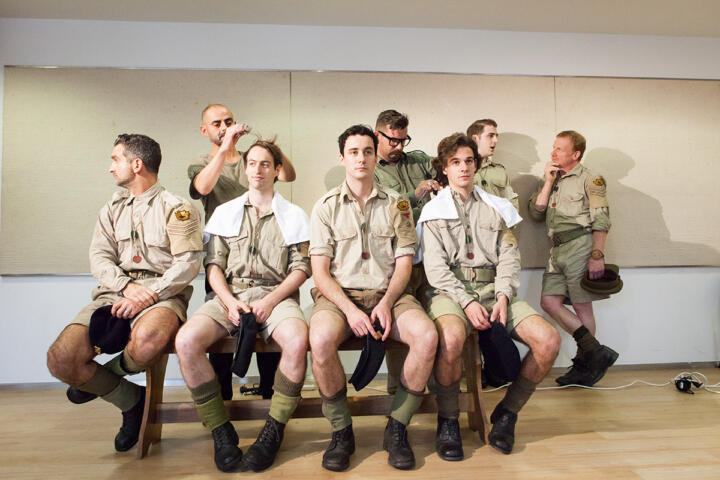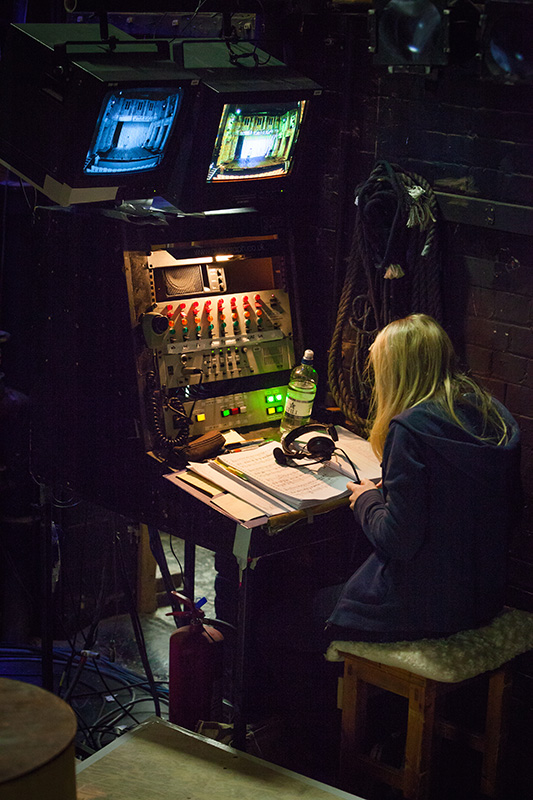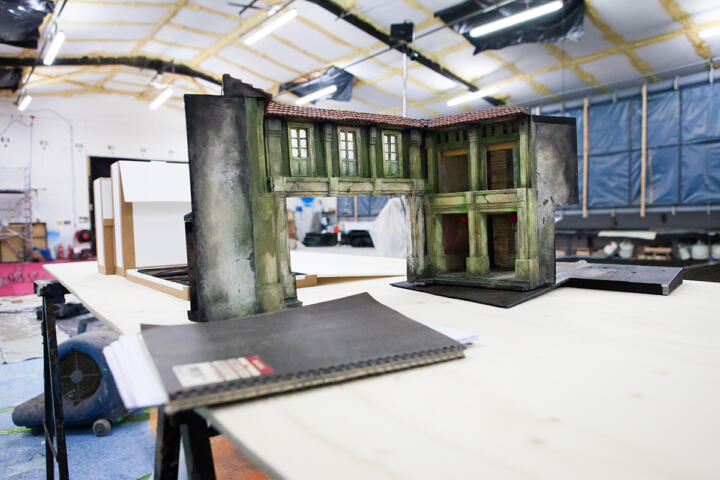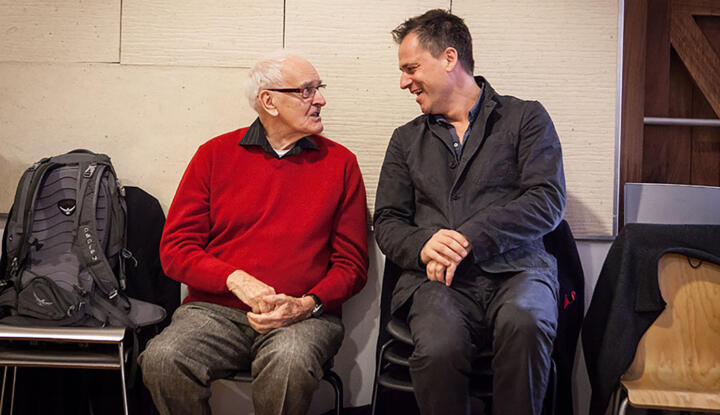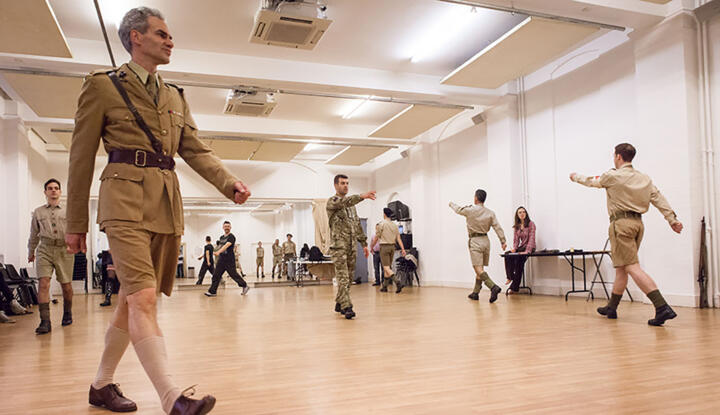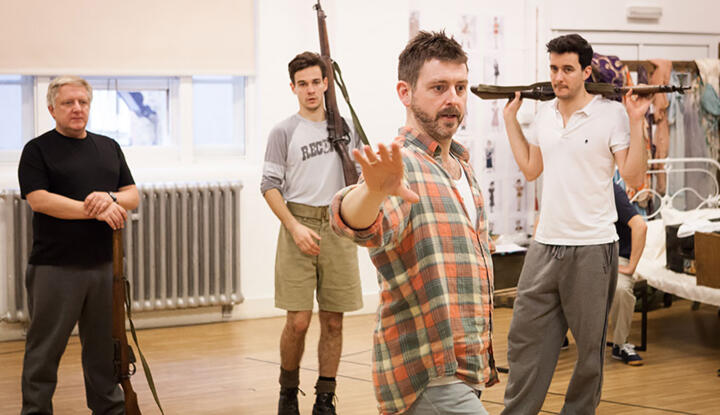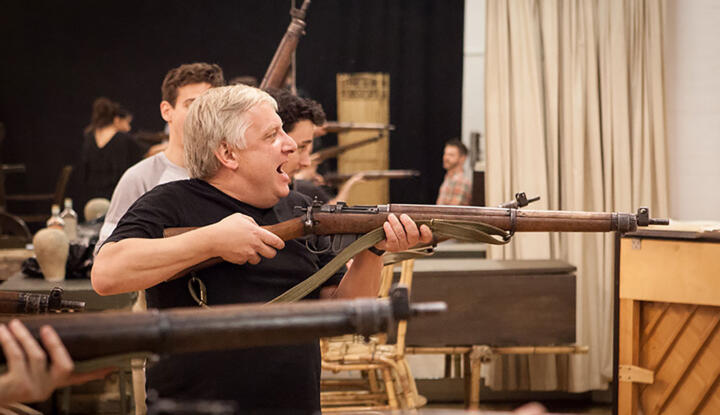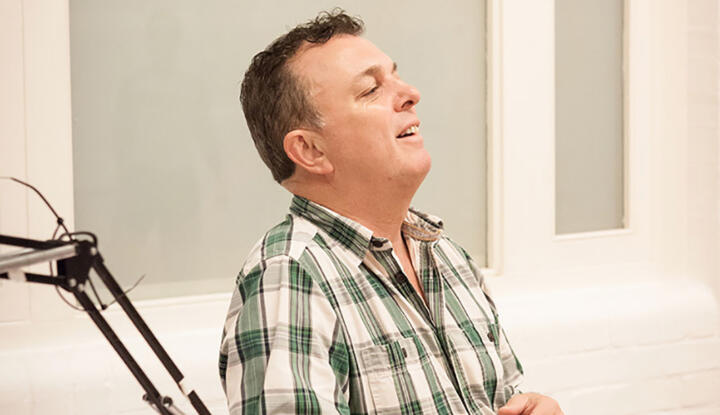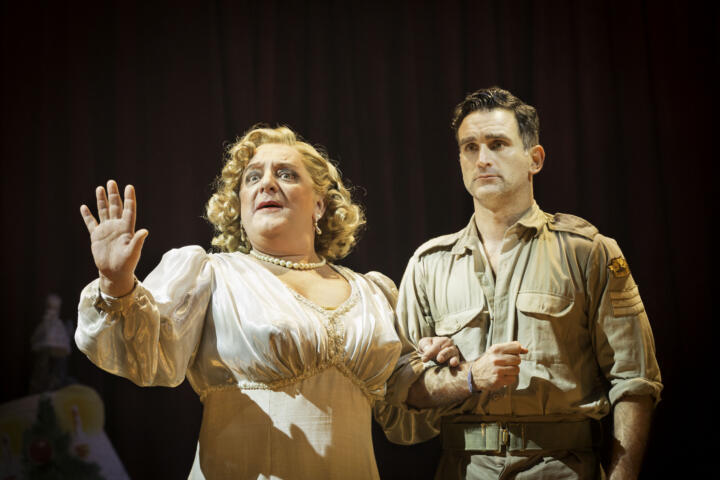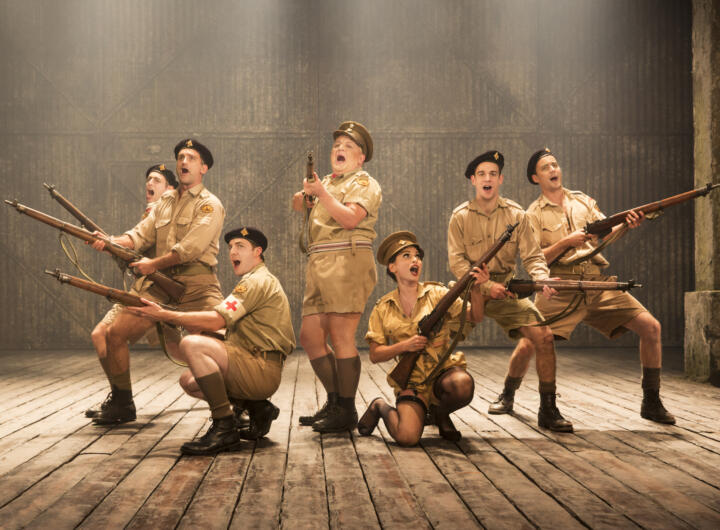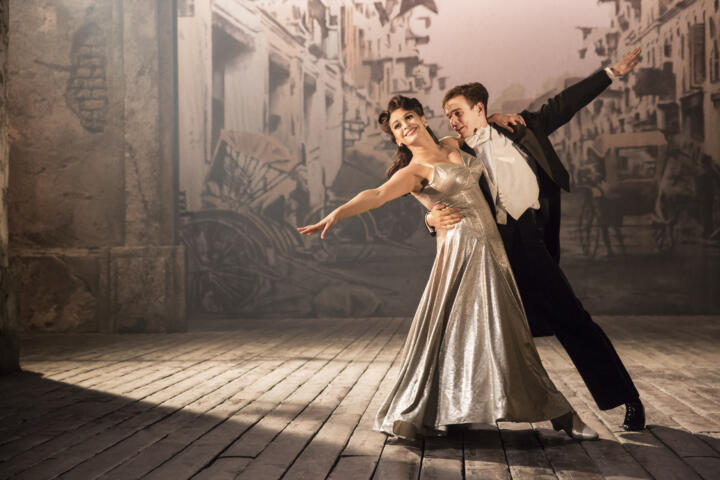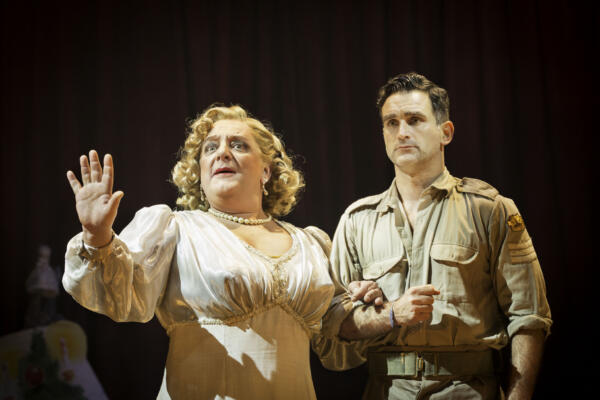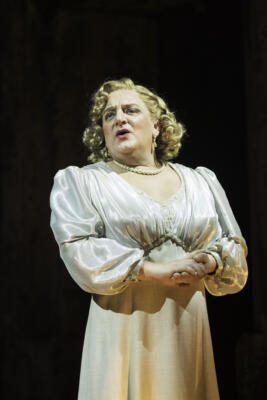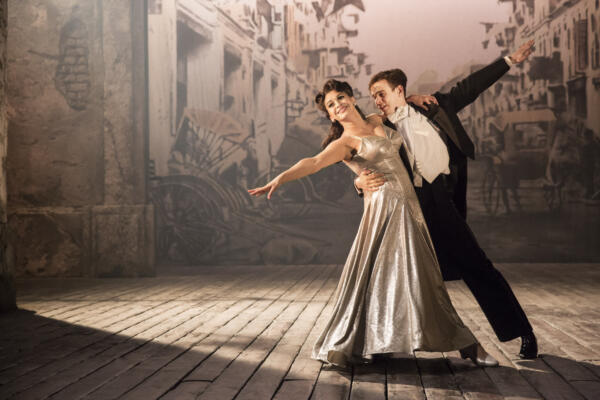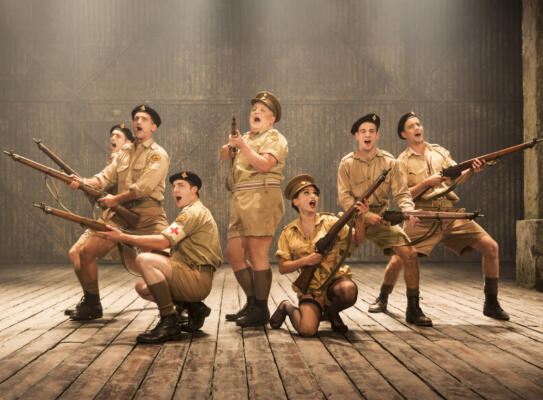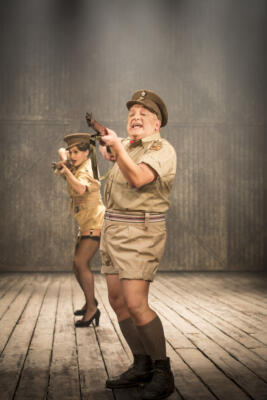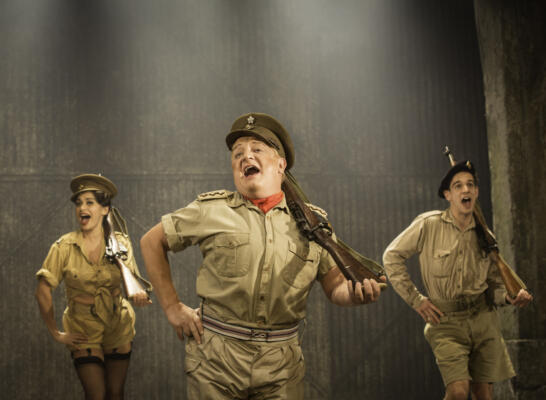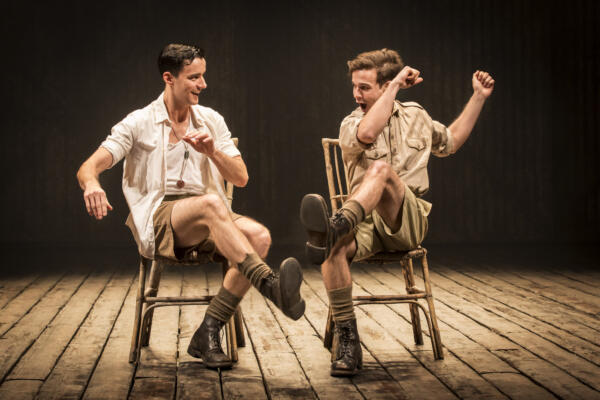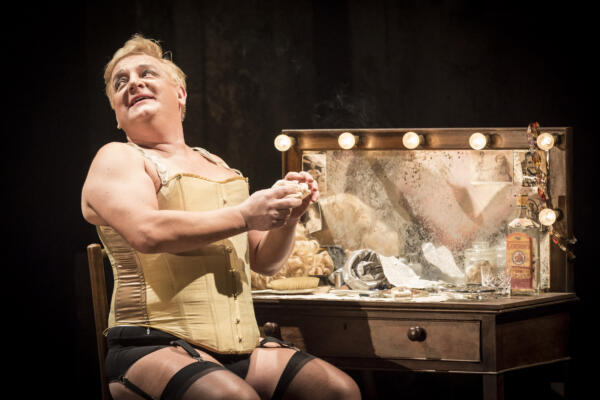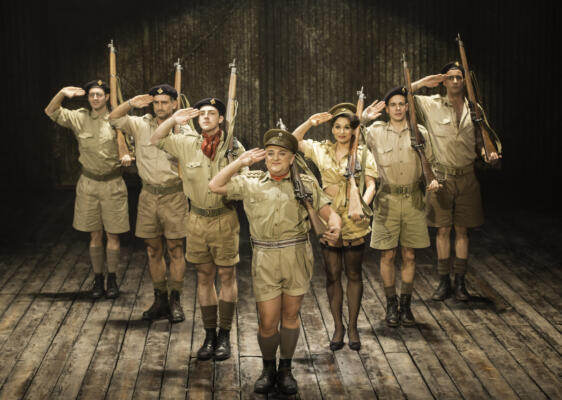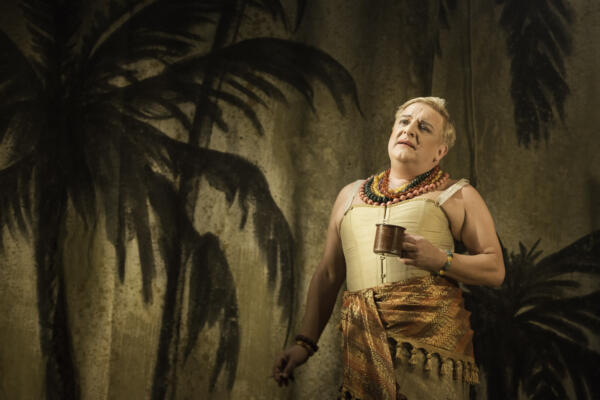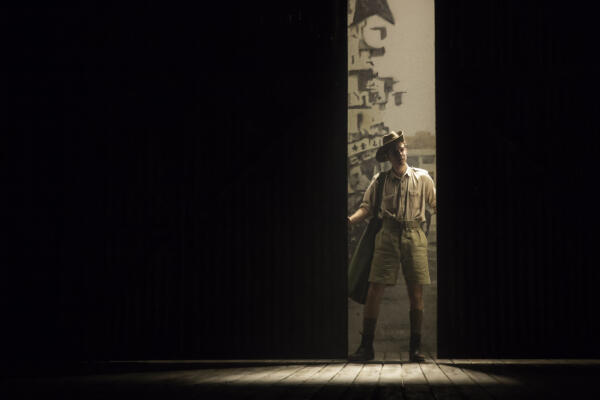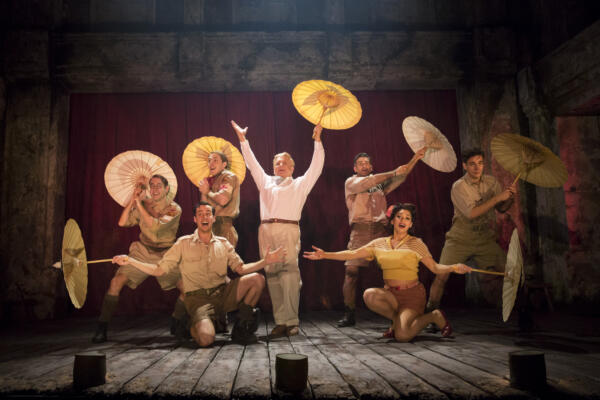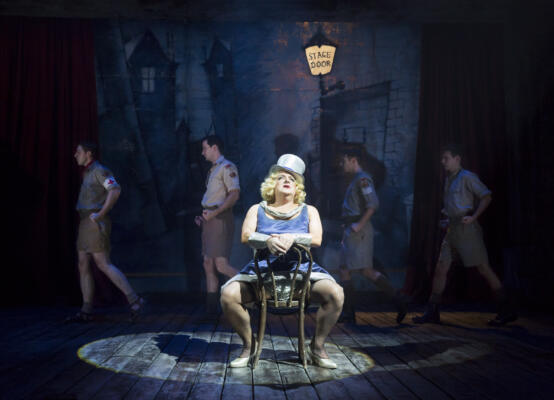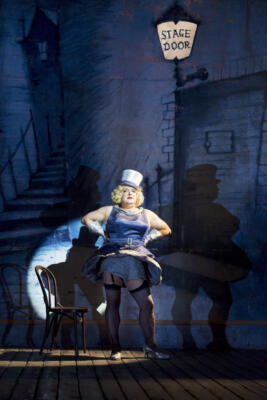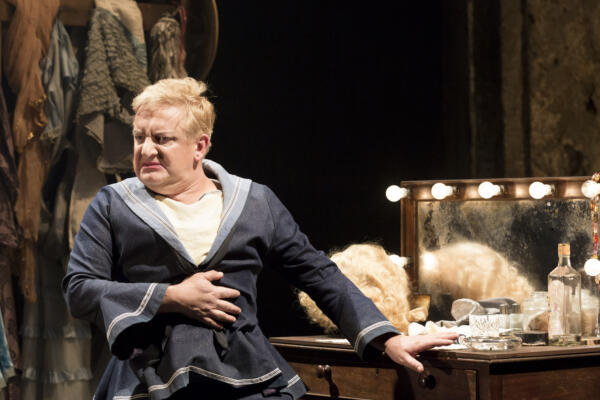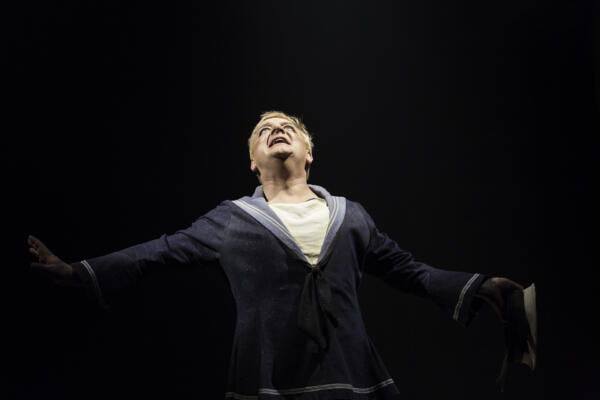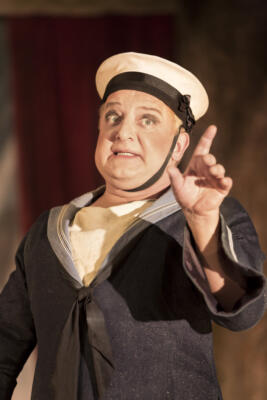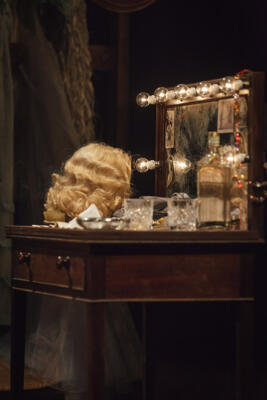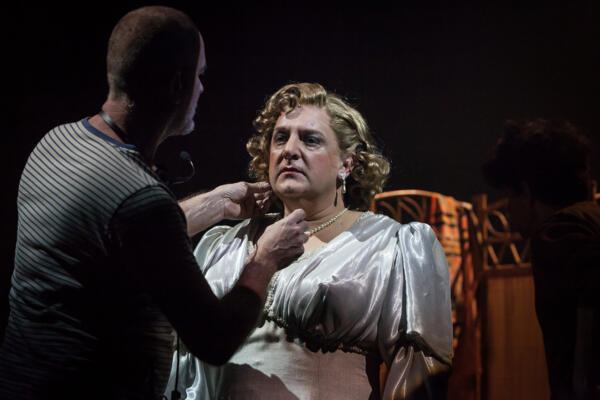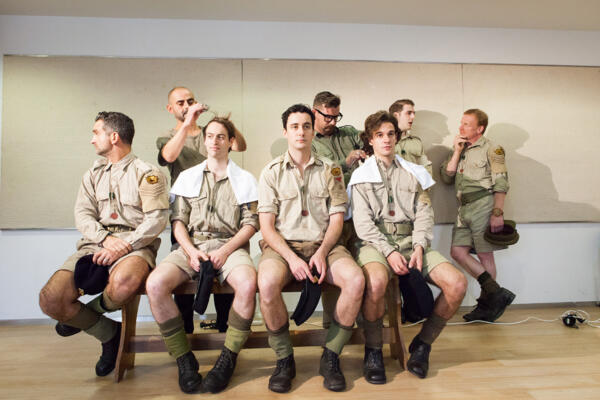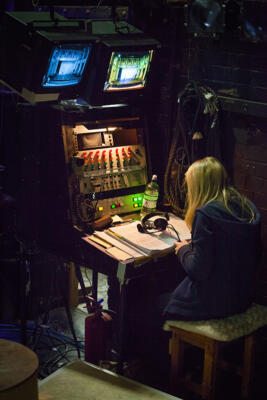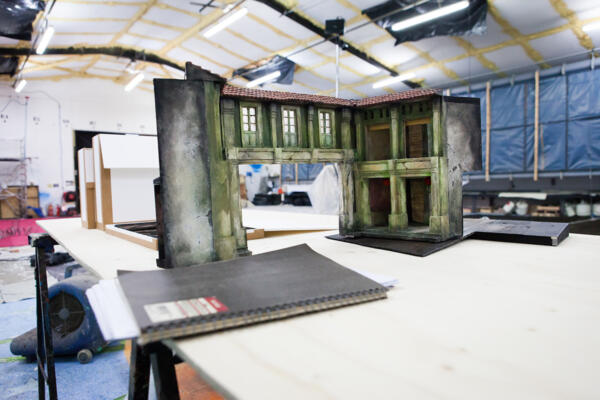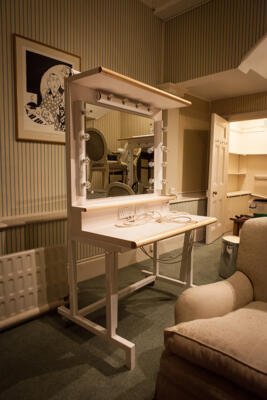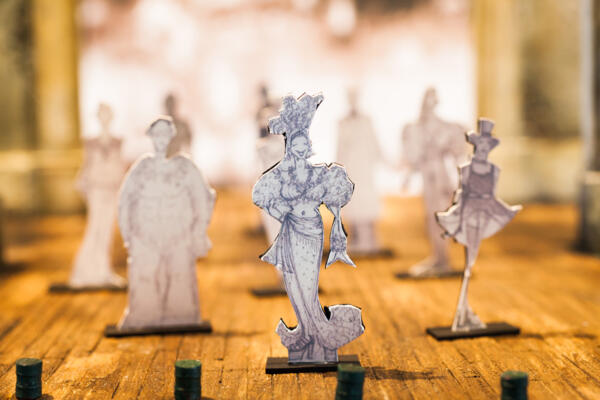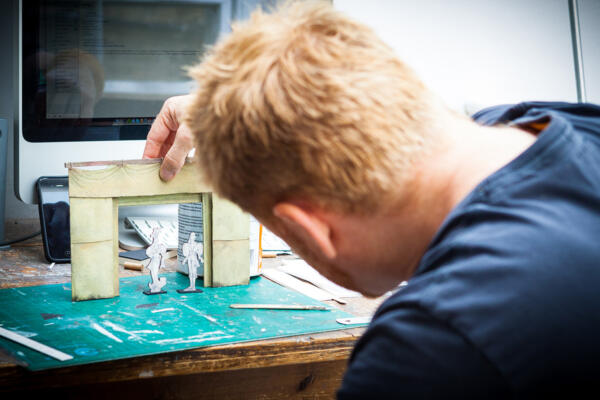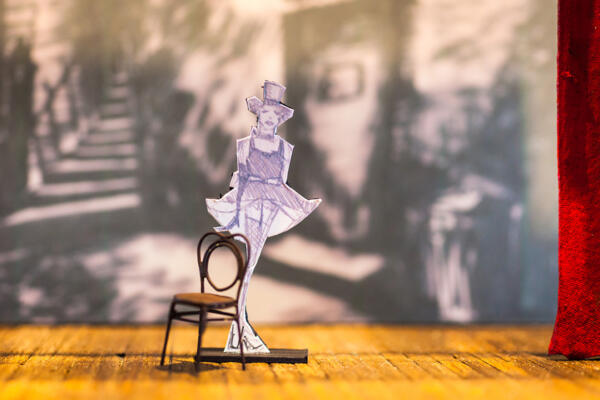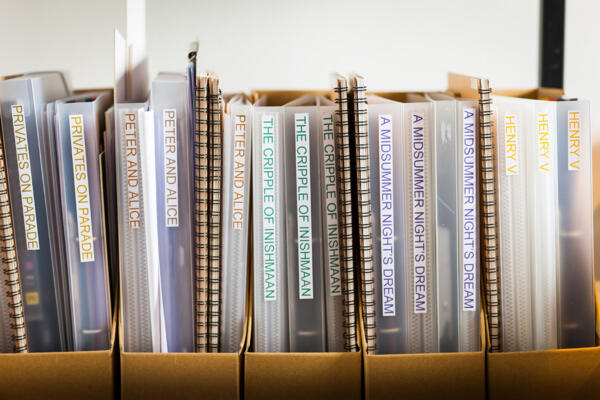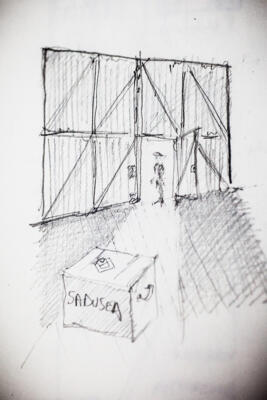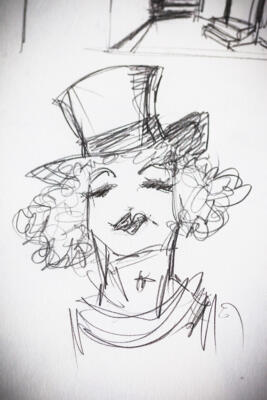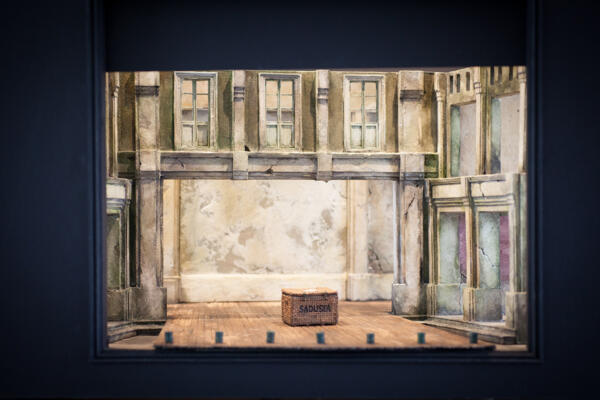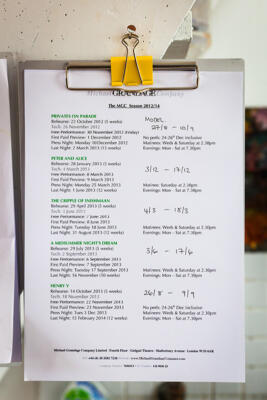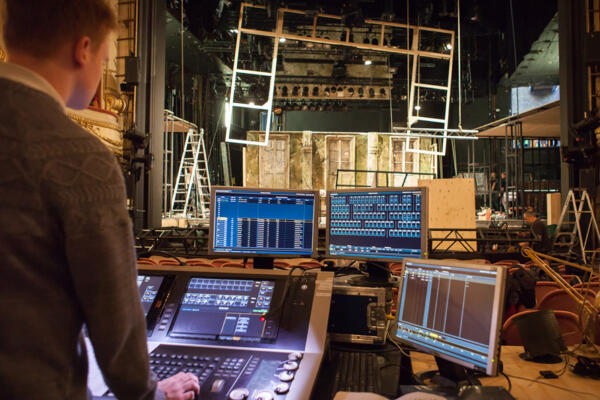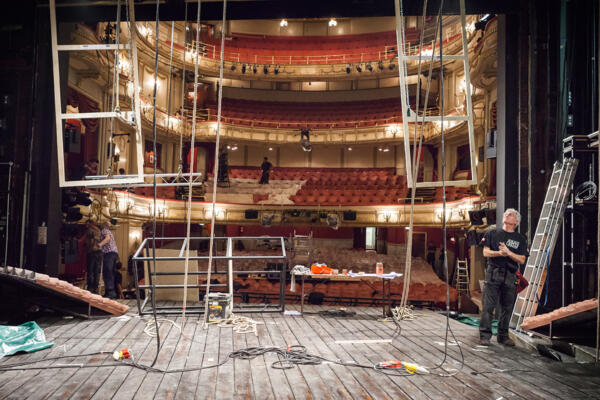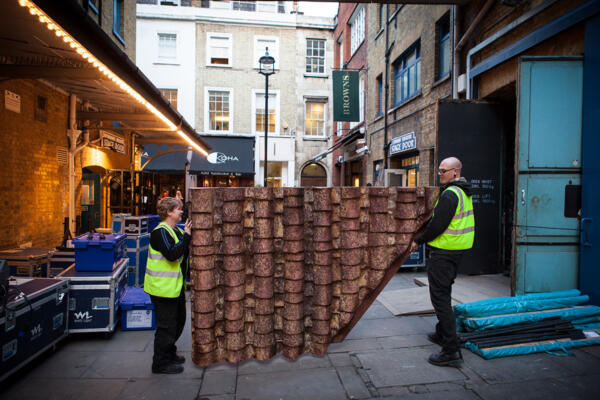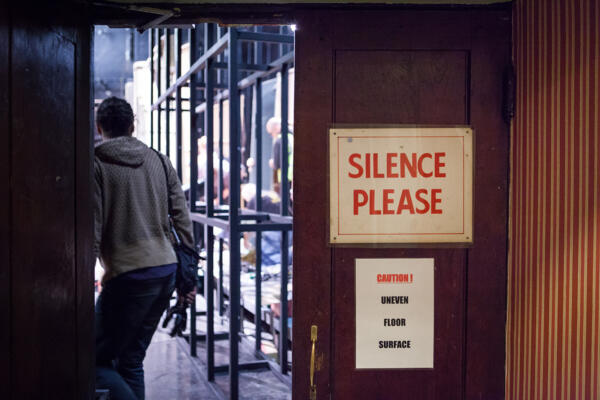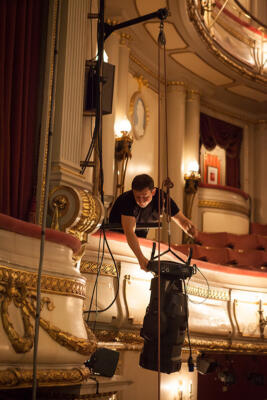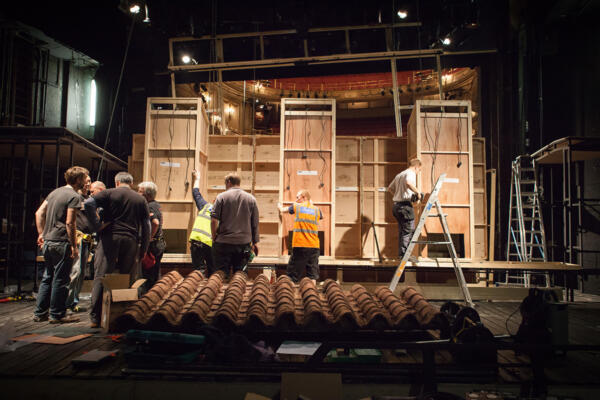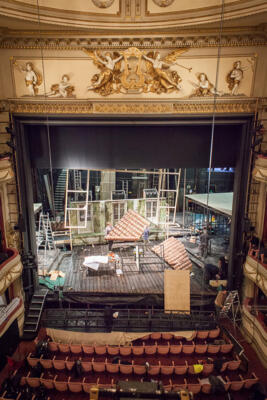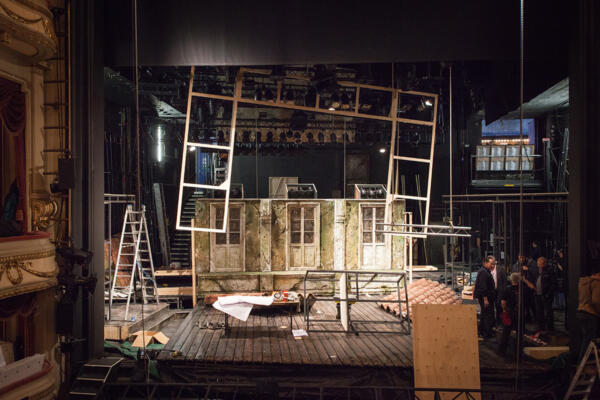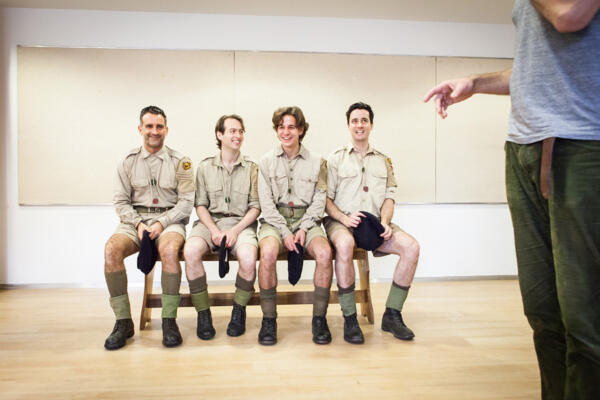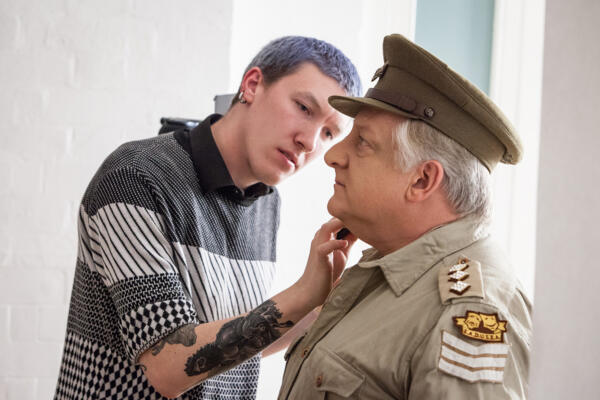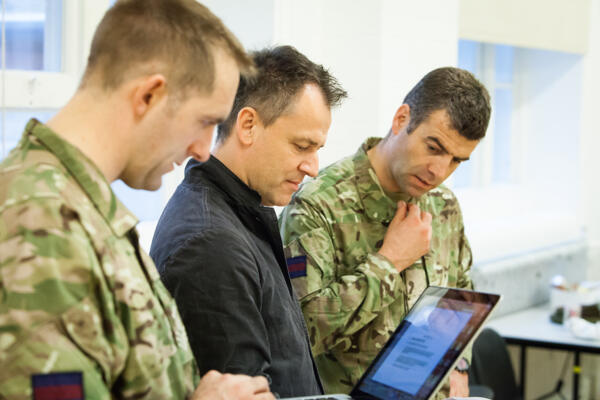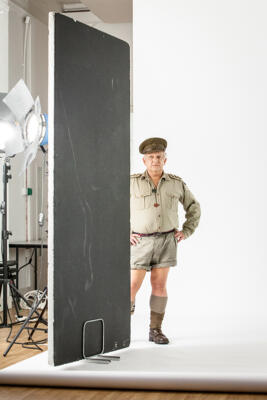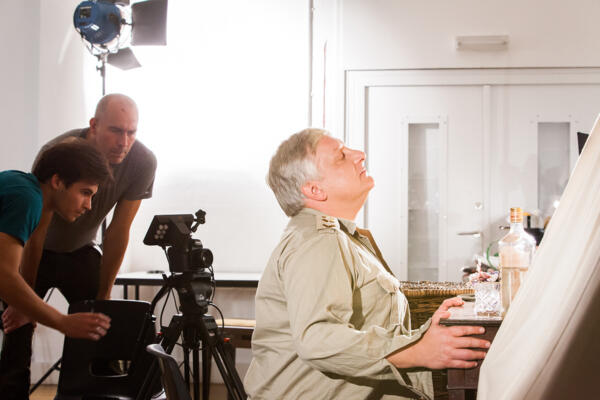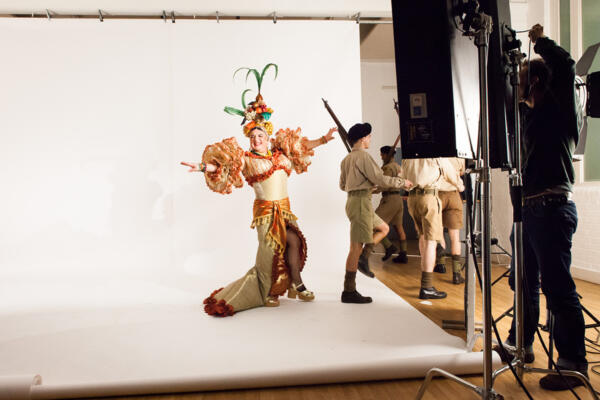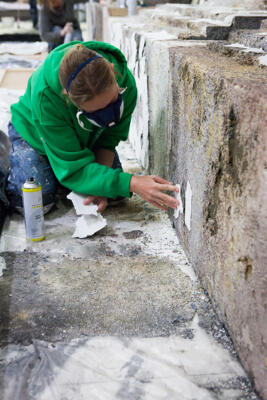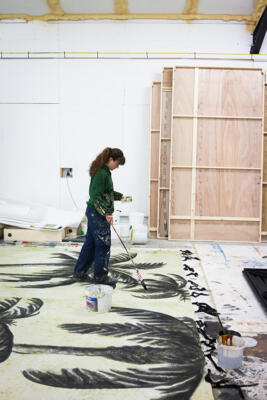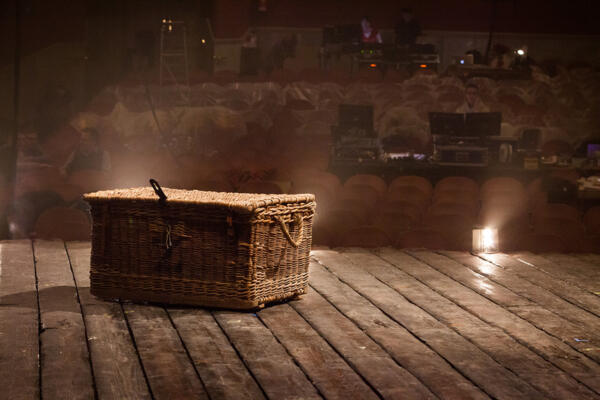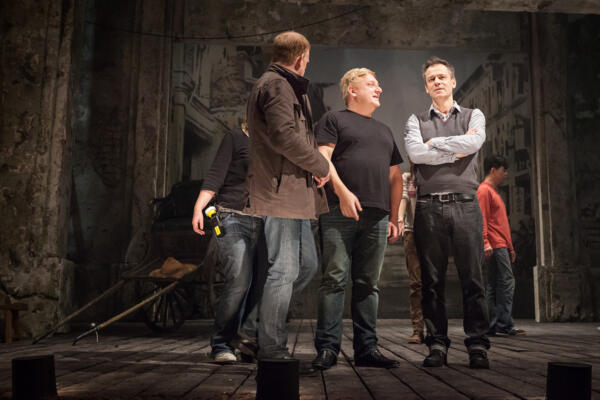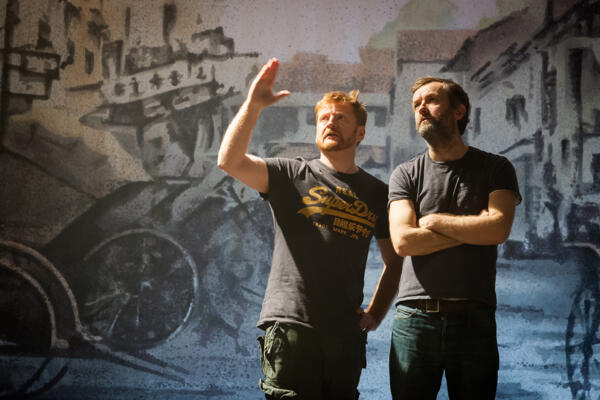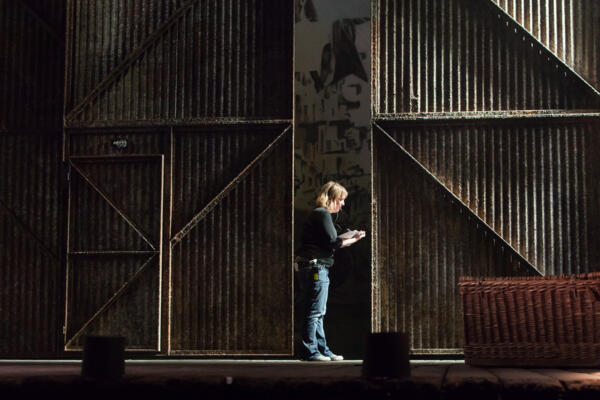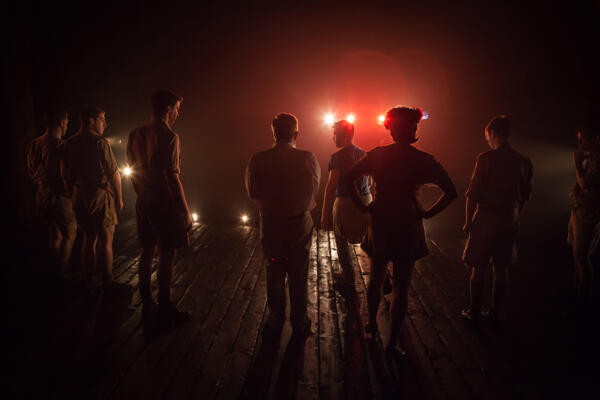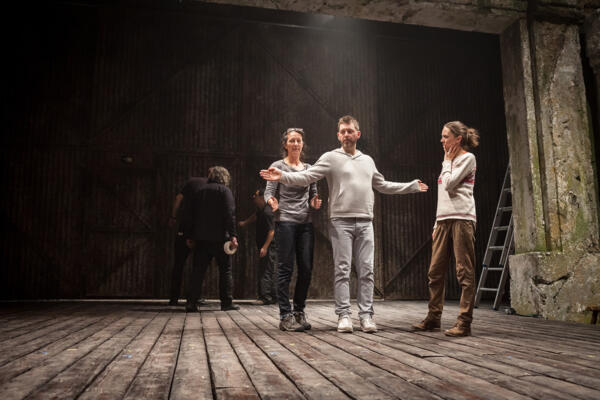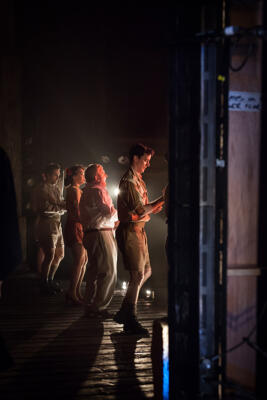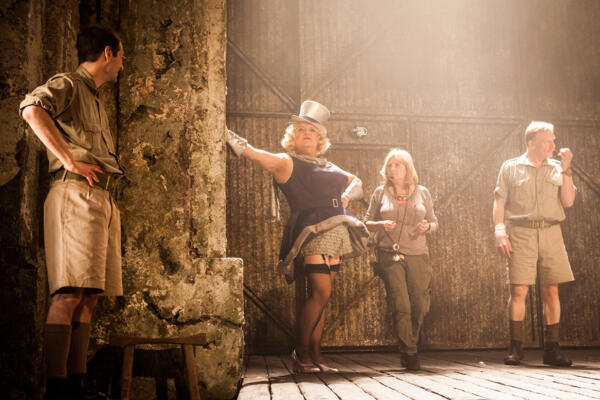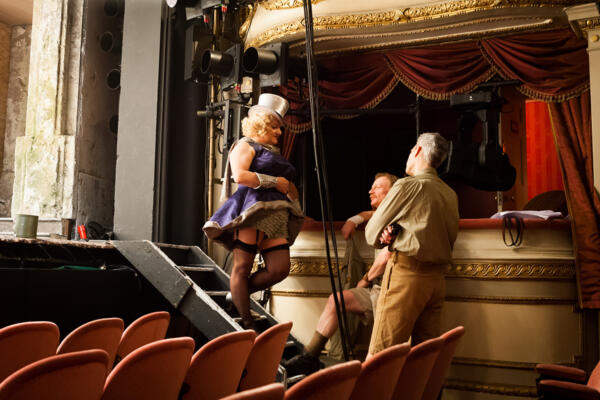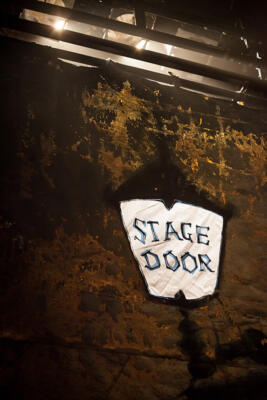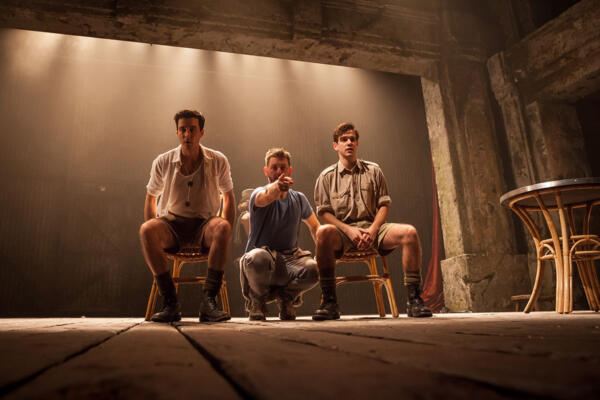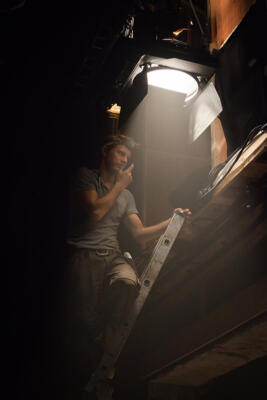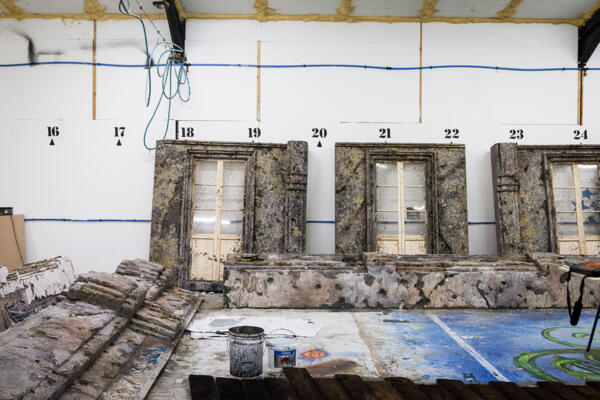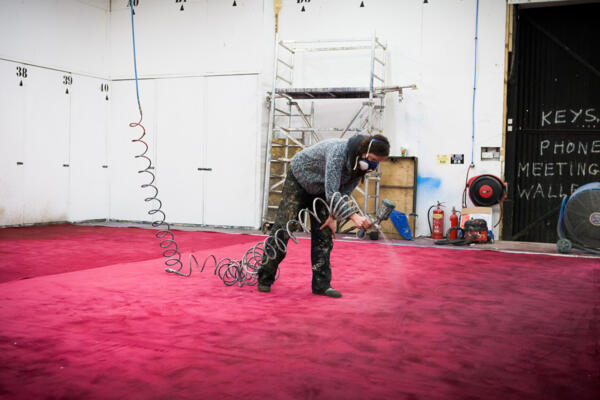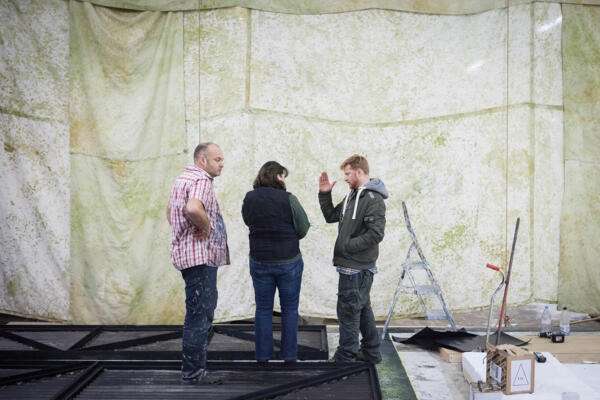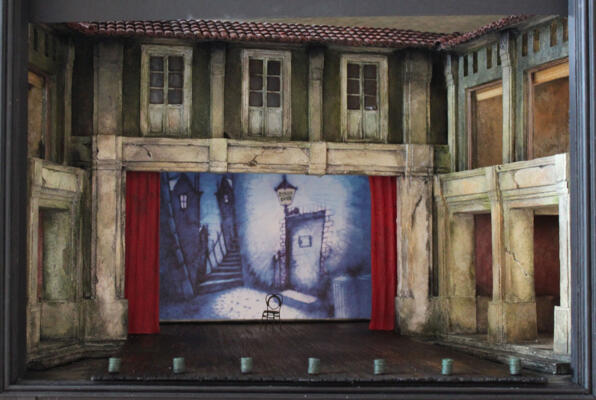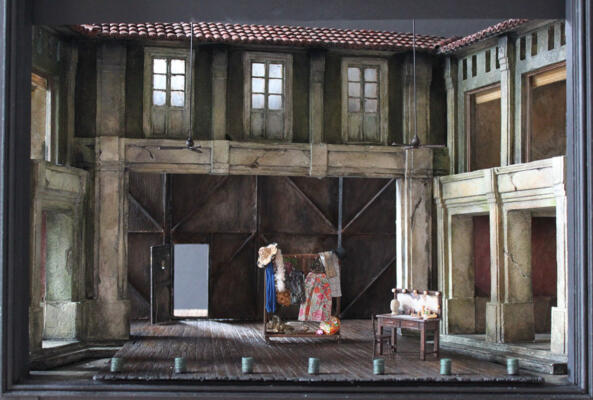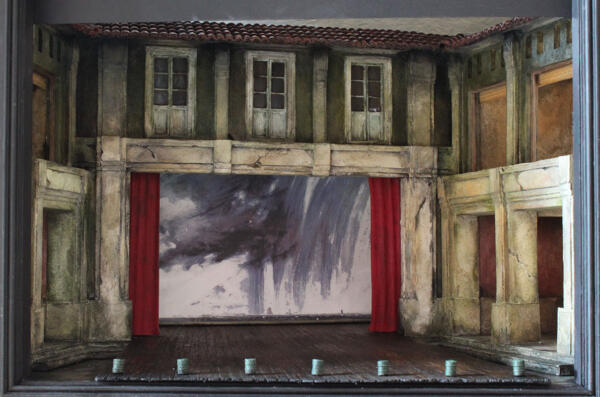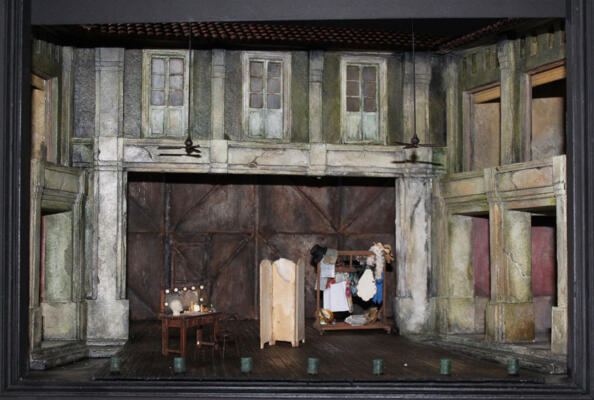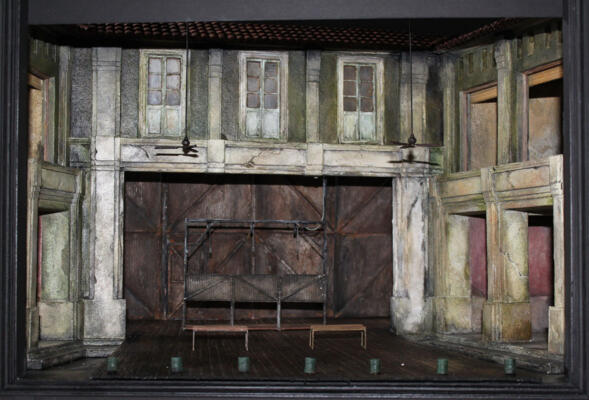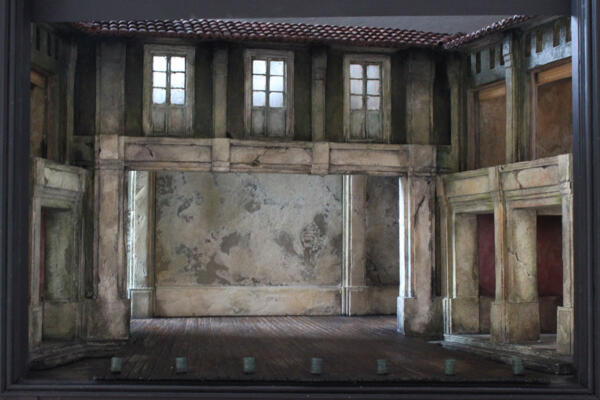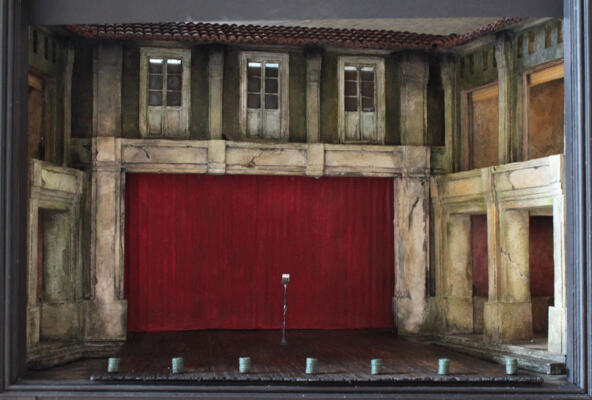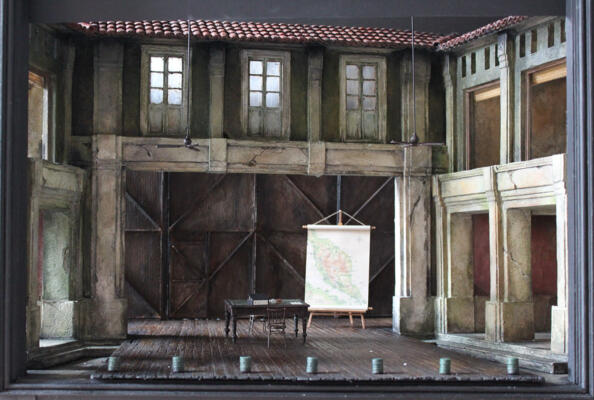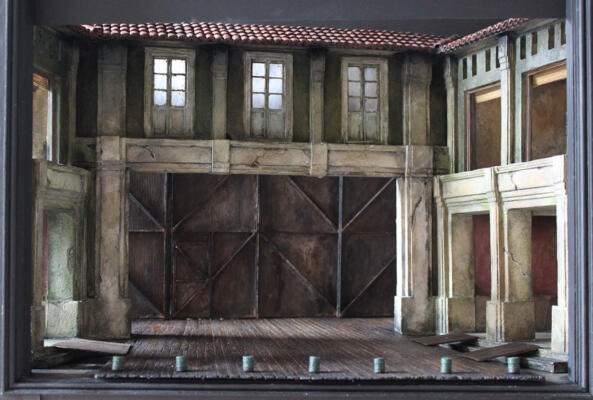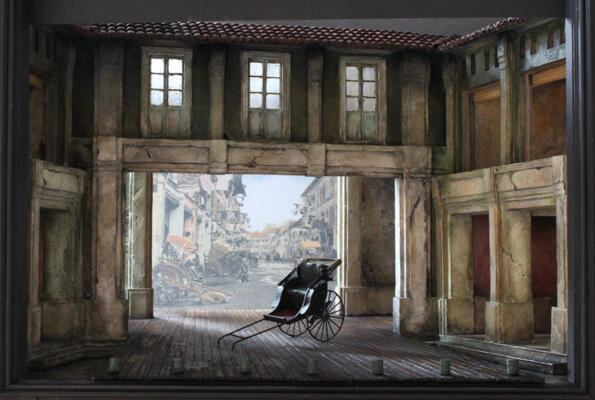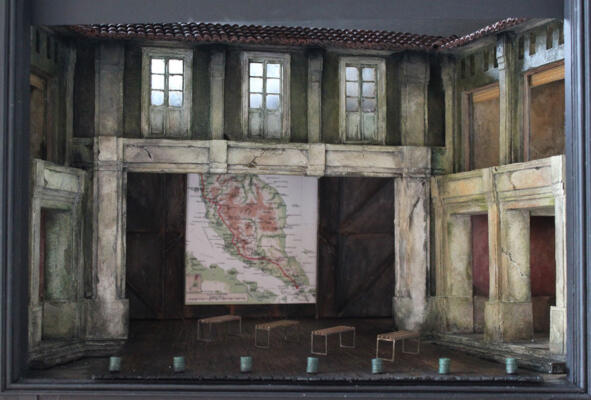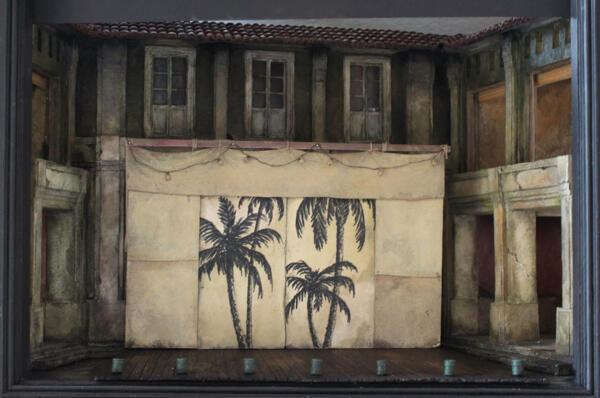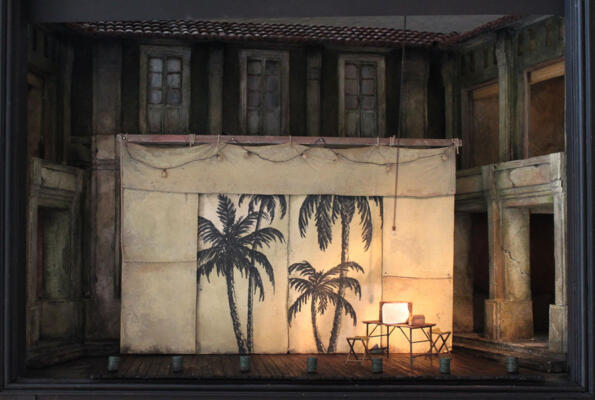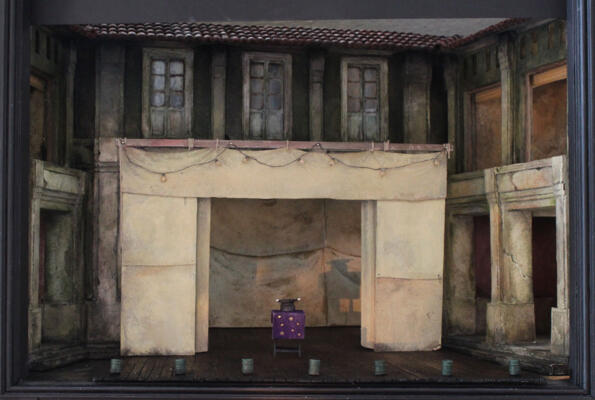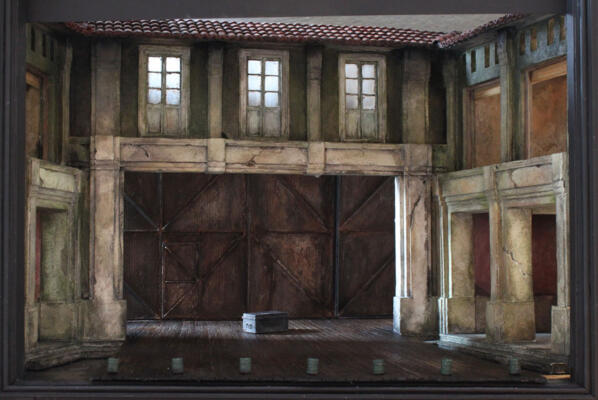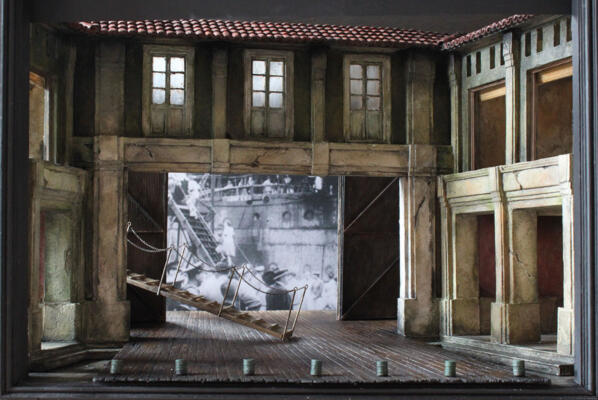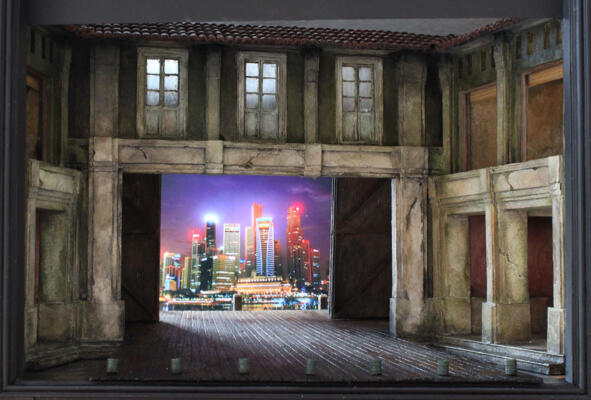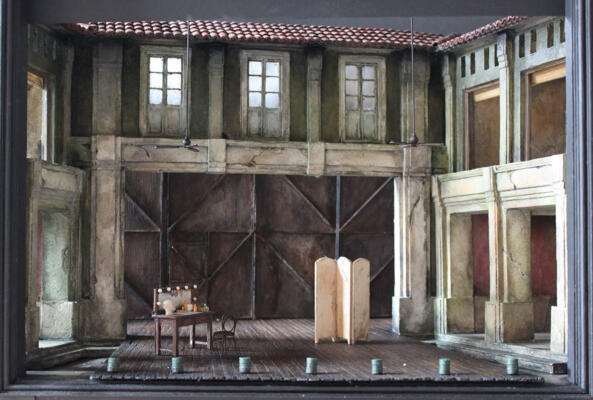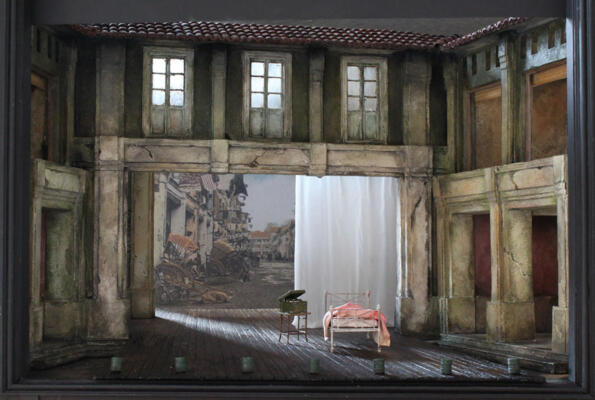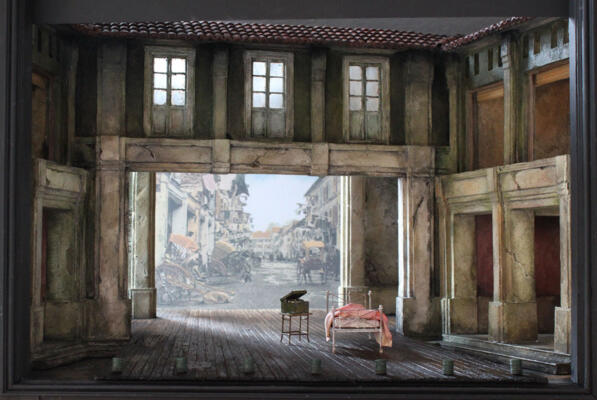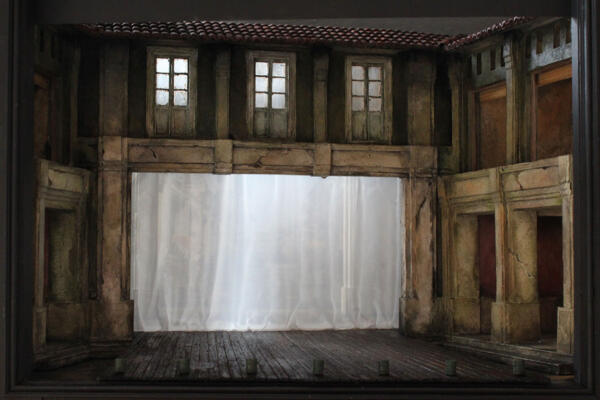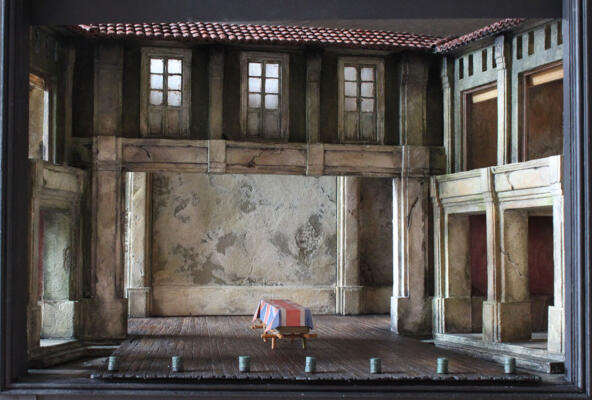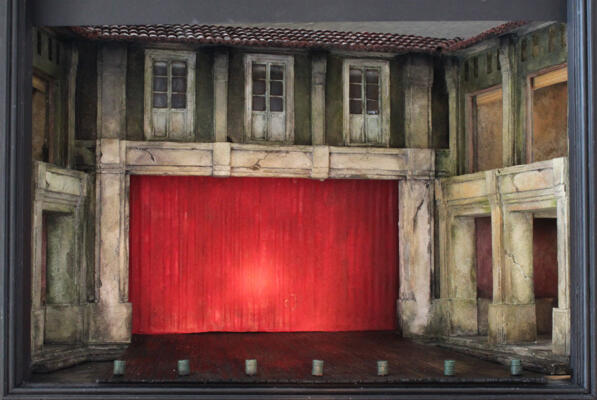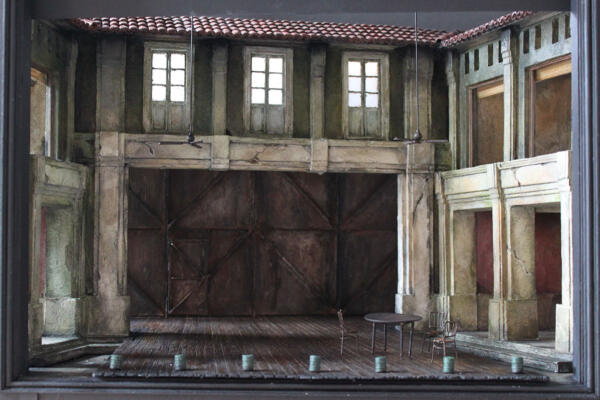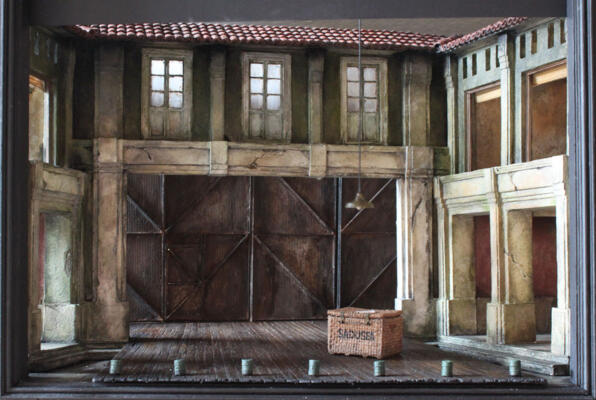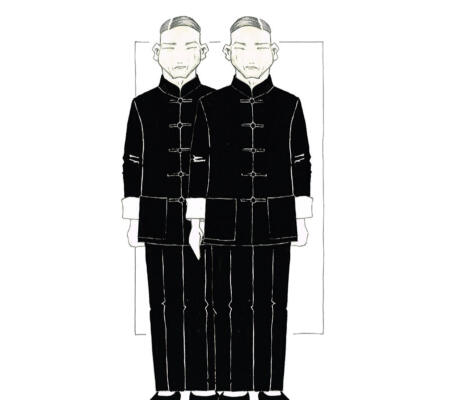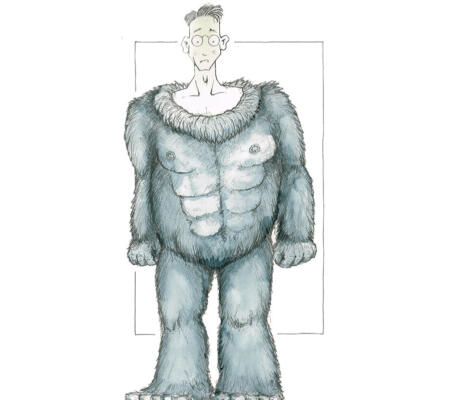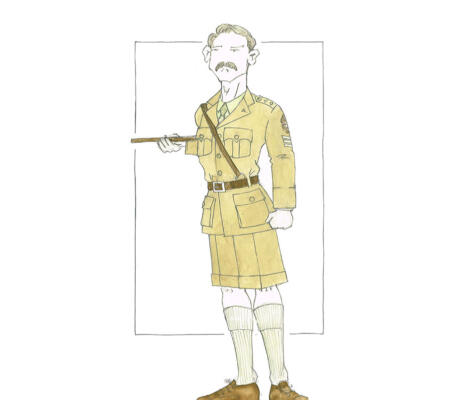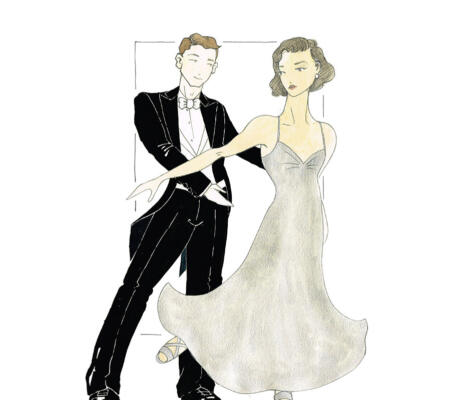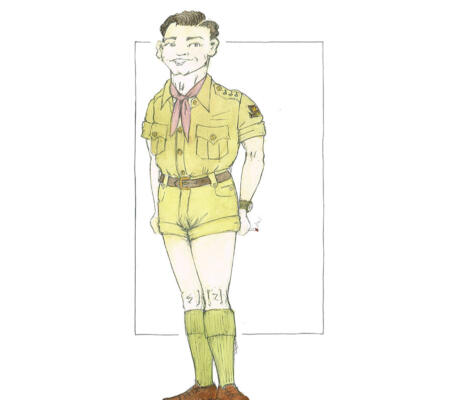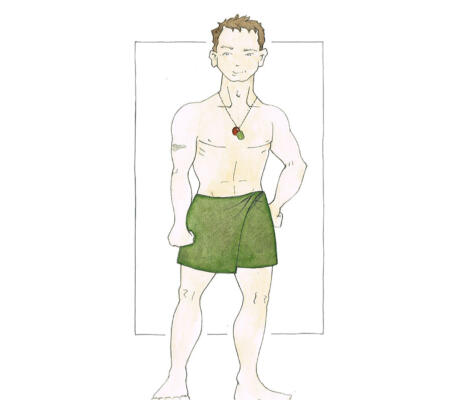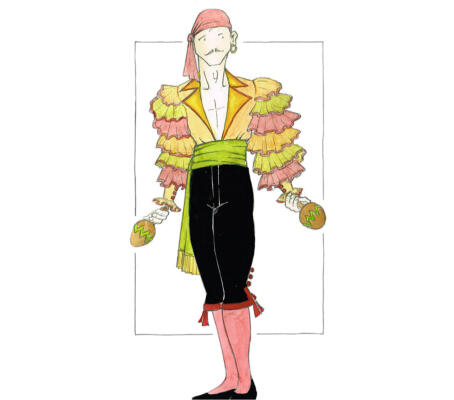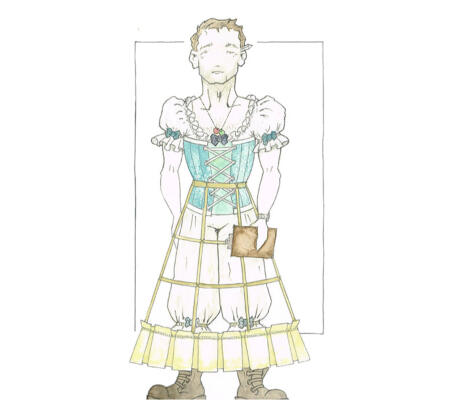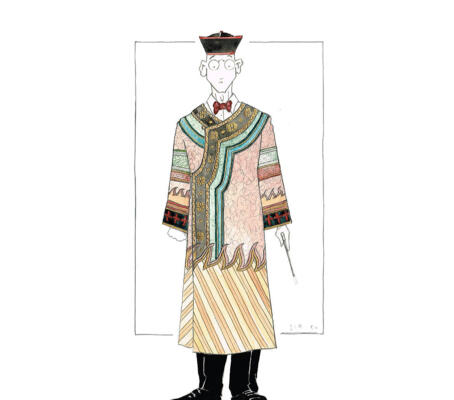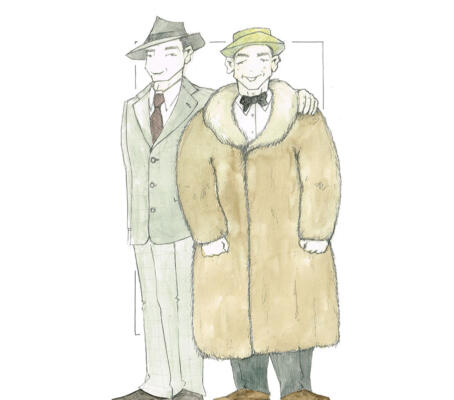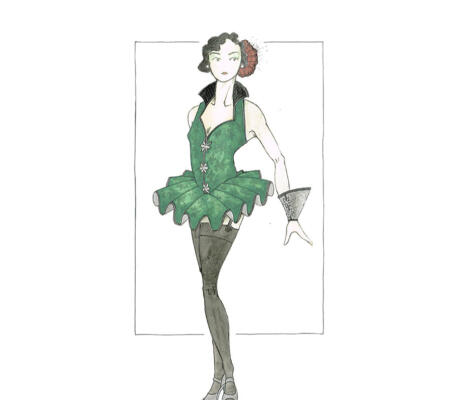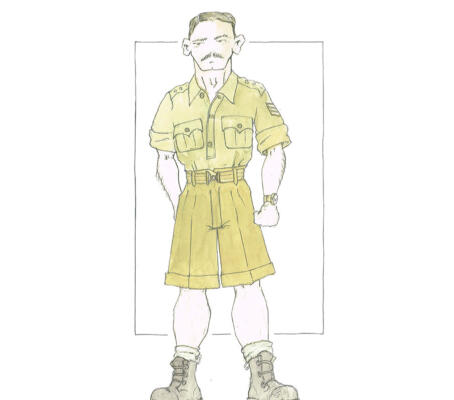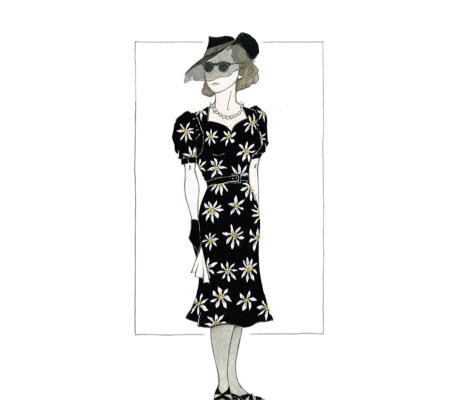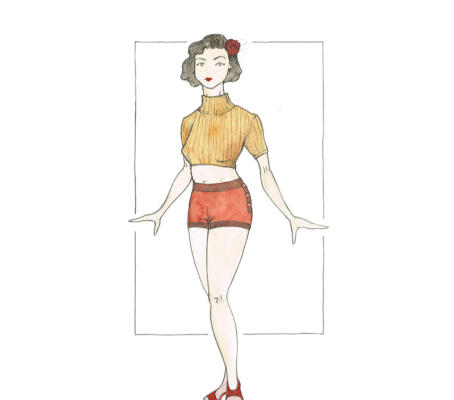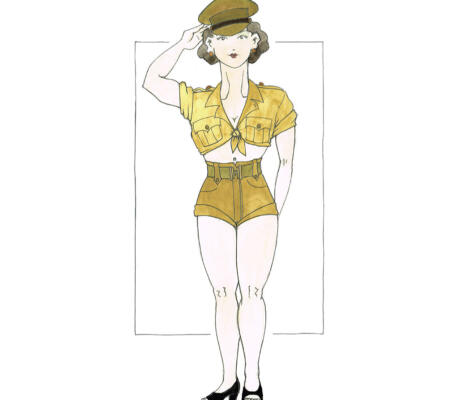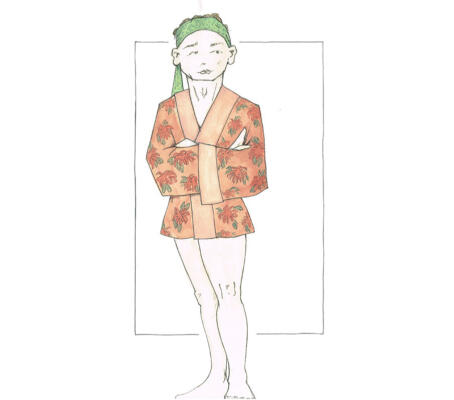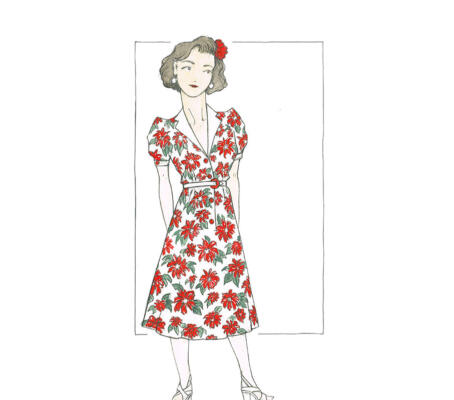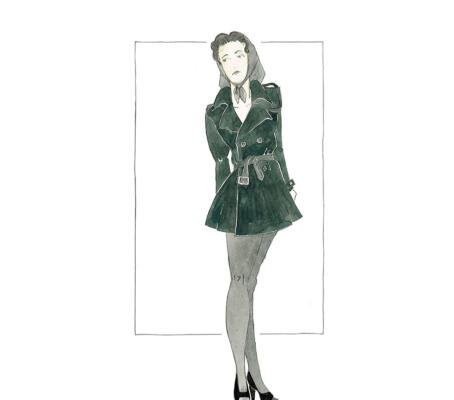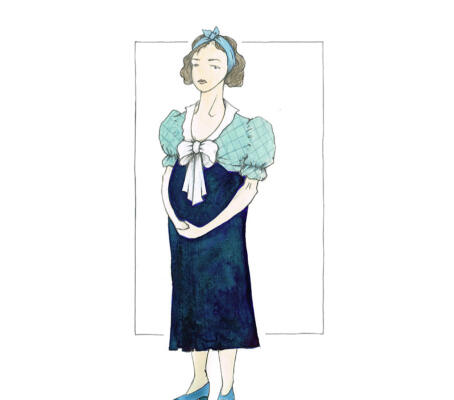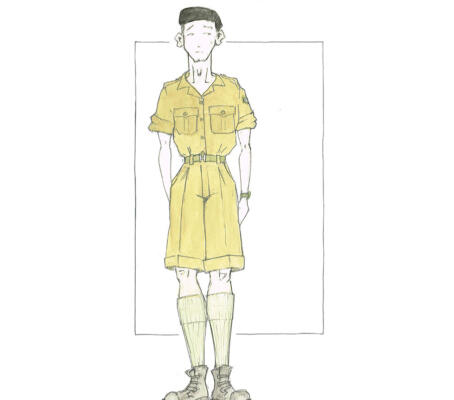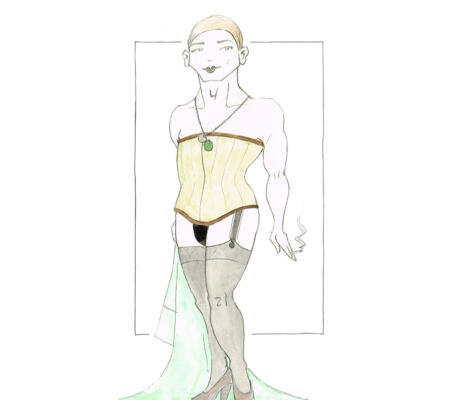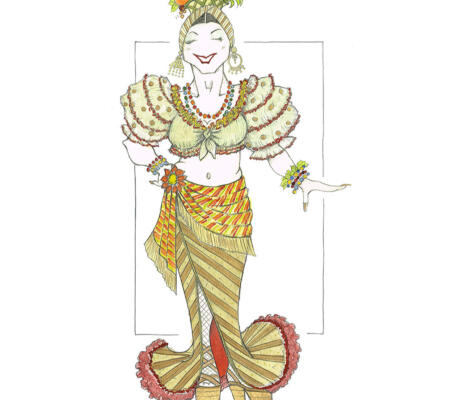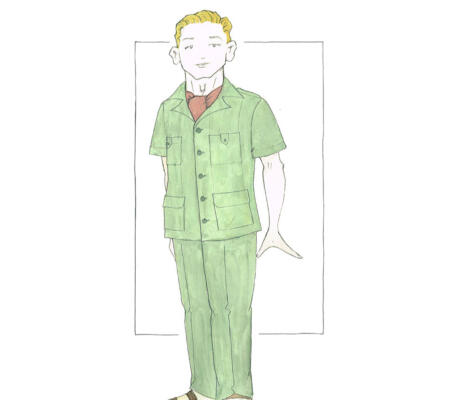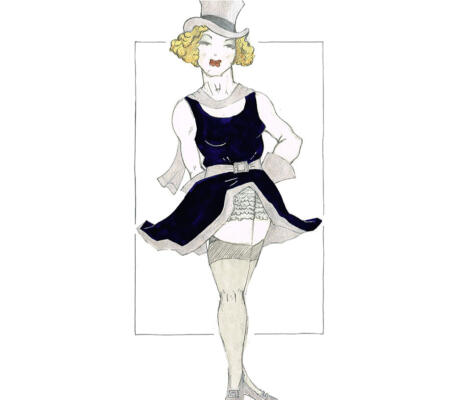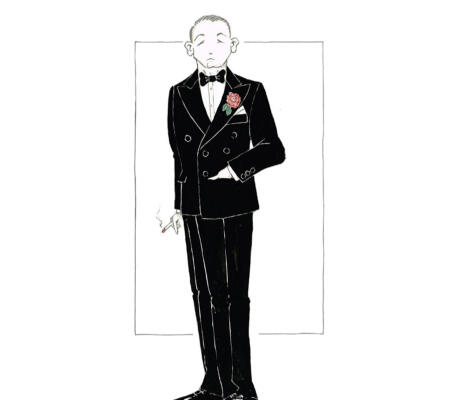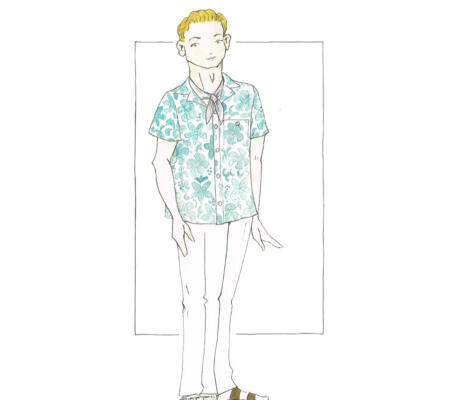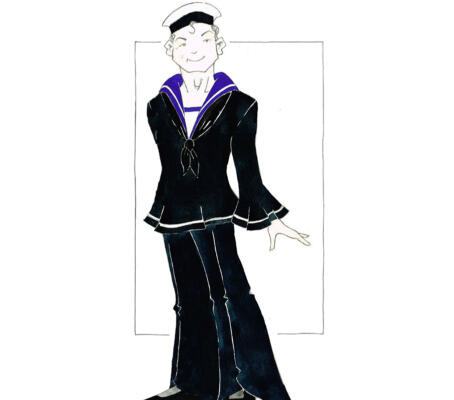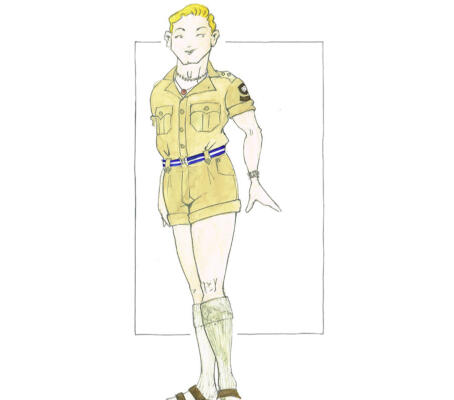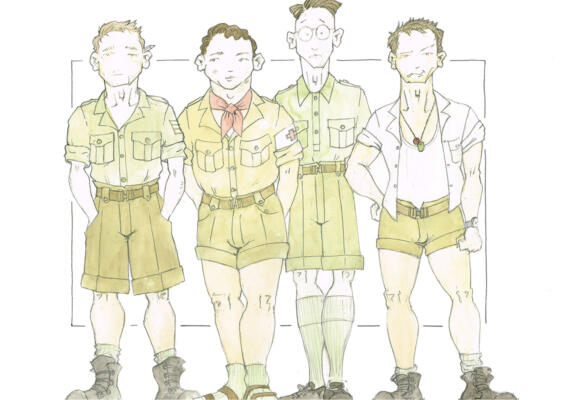Privates on Parade
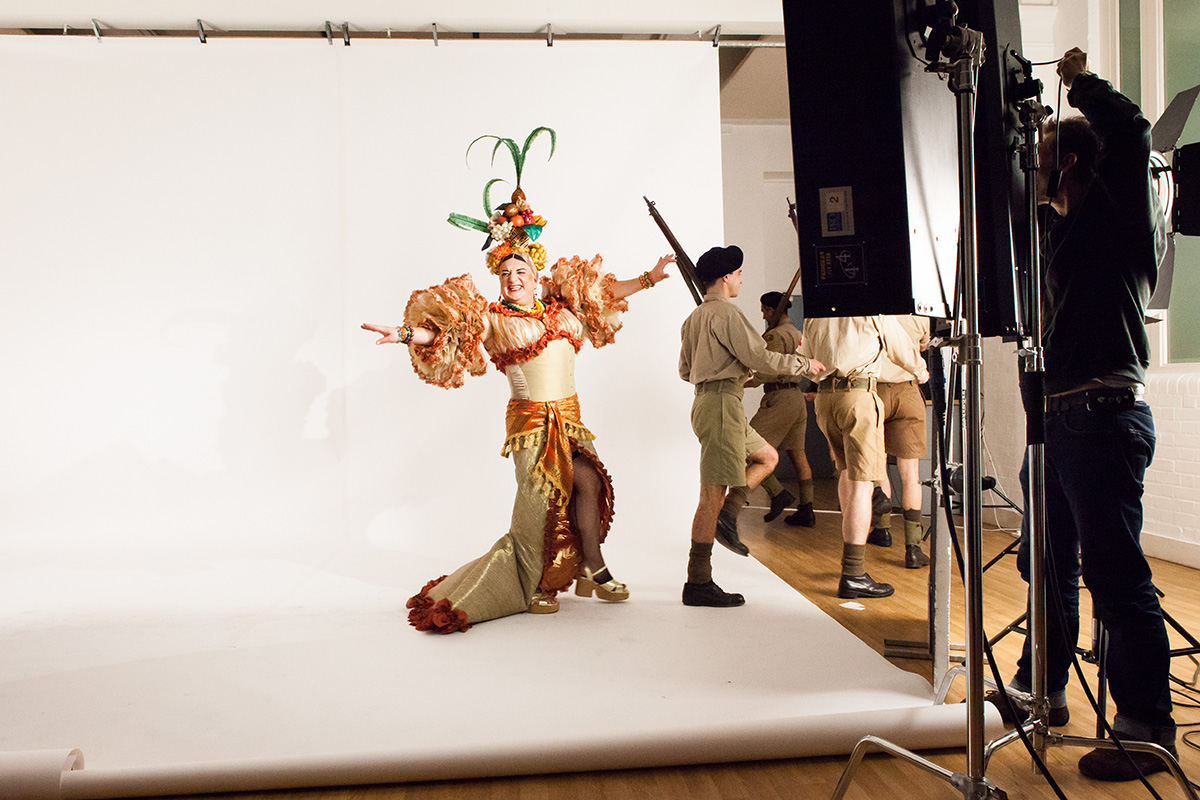
About the work
2012
Welcome to the Michael Grandage Company’s production of Privates on Parade by Peter Nichols
Private Steven Flowers is posted to the Song and Dance Unit South East Asia (SADUSEA) where, under the leadership of the flamboyant Captain Terri Dennis, he learns it takes more than just a uniform to become a man.
Peter Nichols’ semi-autobiographical account of the British Army in Singapore in 1948 is the starting point for one of the writer’s funniest and most theatrical works. Conceived in the form of a variety show, with music by Denis King, the staging of a concert party by SADUSEA is combined with the troupe’s tour through the Malayan countryside, pursued by Communist guerillas.
Simon Russell Beale plays the cross-dressing Captain Dennis, whose performances of Marlene Dietrich, Vera Lynn and Carmen Miranda form the centrepiece of this award-winning comedy, which charts the journey of young Private Flowers and his extraordinary rites of passage.
What Peter Nichols did brilliantly is create a drama with a murderous backdrop about a particular war at a particular time – the Malayan Emergency – but he has done it by following an amateur entertainment troupe into the jungle. So he is able to juxtapose a highly comic scenario against a dark drama, and for a director like me you get the best of all worlds. You get a full-on camp comedy with people putting fruit on their heads and a wonderful document about an under-recorded period of history. From a director’s point of view and an audience’s point of view it’s exciting and interesting all at the same time.’
Michael Grandage, Artistic Director, MGC
SADUSEA – Ready for action
It’s 1948. Three years after the end of the Second World War, conscription is still in operation in Britain and all ‘healthy males’ aged 17 to 21 must serve two years National Service. Twenty-year-old Steven Flowers is posted to Singapore in South-East Asia, then part of British-ruled Malaya, where the Malayan Communist Party want independence from the UK.
Malaya’s tin and rubber industries are vital to Britain’s post-war recovery and the British refer to the conflict as the ‘Malayan Emergency’ – insurers wouldn’t cover potential losses if it were termed a war. The armed forces of the Malayan Communist Party, however, are unequivocal, calling it the ‘Anti-British National Liberation War’.
Major Giles Flack recognises the seriousness of the situation, the threat to the declining British Empire and a Christian way of life, but his ability to act is limited while in command of a concert party to entertain the troops – the Song and Dance Unit South East Asia (SADUSEA). He doesn’t understand the theatre, and least of all the troupe’s leader and star, Captain Terri Dennis – with his cross-dressing and calling men by women’s names.
Private Flowers, recently promoted to sergeant, shows promise and is potential sergeant-major material – following the untimely death of the previous sarnt-major – but the young man claims to have fallen in love with the concert party’s only female performer, ‘Eurasian’ dancer Sylvia Morgan.
Major Flack isn’t going to let that stop his secret plans to lead the company up-country, though, using it as bait to flush out the Malayan Communist Party’s guerilla fighters – a real ‘Jungle Jamboree’. But first he’s got to turn a theatrical troupe into an armed unit… Armed and ready for action.
Production Team
| Role | Credit |
|---|---|
| Director | Michael Grandage |
| Set & Costume Designer | Christopher Oram |
| Lighting Designer | Paule Constable |
| Choreographer | Ben Wright |
| Musical Director | Jae Alexander |
| Sound Designers | Nick Lidster & Terry Jardine for Autograph |
| Casting Director | Toby Whale |
| Wig & Hair Designer | Richard Mawbey |
| Production Manager | Paul Handley |
| Company Stage Manager | Katy Bryant |
| Deputy Stage Manager | Rhiannon Harper |
| Assistant Stage Manager | Danyal Shafiq |
| Associate Director | Cathal Cleary |
| Associate Set & Costume Designers | Lee Newby & David Woodhead |
| Associate Lighting Designer | Ben Donoghue |
| Associate Sound Designer | Yvonne Gilbert |
| Dialect Coach | Penny Dyer |
| Props Supervisor | Celia Strainge |
| Costume Supervisor | Natasha Ward |
| Head of Wardrobe | Tim Gradwell |
| Head of Wigs & Make‑Up | Gemma Flaherty |
| Deputy Head of Wardrobe | Charlotte Stidwell |
| Wardrobe Assistant | Rachael McIntyre |
| Dresser | Evita Aslanidou |
| Rehearsal Photographers | Marc Brenner & Hugo Glendinning |
| Production Photographer | Johan Persson |
Band
| Role | Credit |
|---|---|
| Musical Director/Piano | Jae Alexander |
| Associate Musical Director | Steve Ridley |
| Bass | Joe Pettitt |
| Percussion | James Gambold |
| Trumpet | Andy Gathercole |
| Clarinet/Flute/Alto Saxophone | Steve Moss |
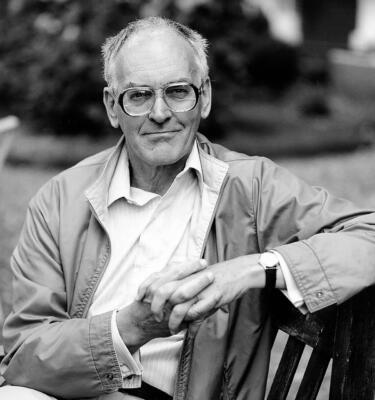
Peter Nichols
Peter Nichols was born in Bristol in 1927. After National Service in India, Malaya and Hong Kong, he was an actor in repertory theatre and television for five years and then a teacher in London schools. He is a Fellow of the Royal Society of Literature. He and his wife, to whom he has been married since 1960, now live in Oxford.
His plays include: A Day in the Death of Joe Egg, The National Health, Forget-Me-Not Lane, The Freeway, Chez Nous, Privates on Parade, Born in the Gardens, Passion Play, Poppy, Blue Murder, So Long Life, A Piece of My Mind and Lingua Franca. Awards include four Evening Standard, two Society of West End Theatres, one Ivor Novello and one Tony.
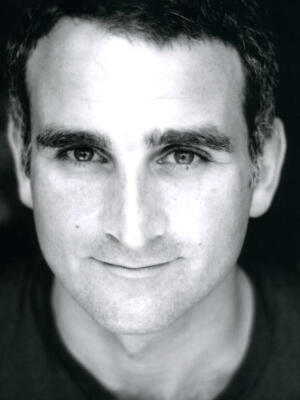
Corporal Len Bonny (John Marquez)
“By turns aggressive and morose, with a Midlands accent.”
Older than Steven, Len’s been a ‘stores‑basher’ in the army – managing supplies – for years. Temperamental, with a tendency for Tourettes, he demonstrates his more vulnerable side with Charles.
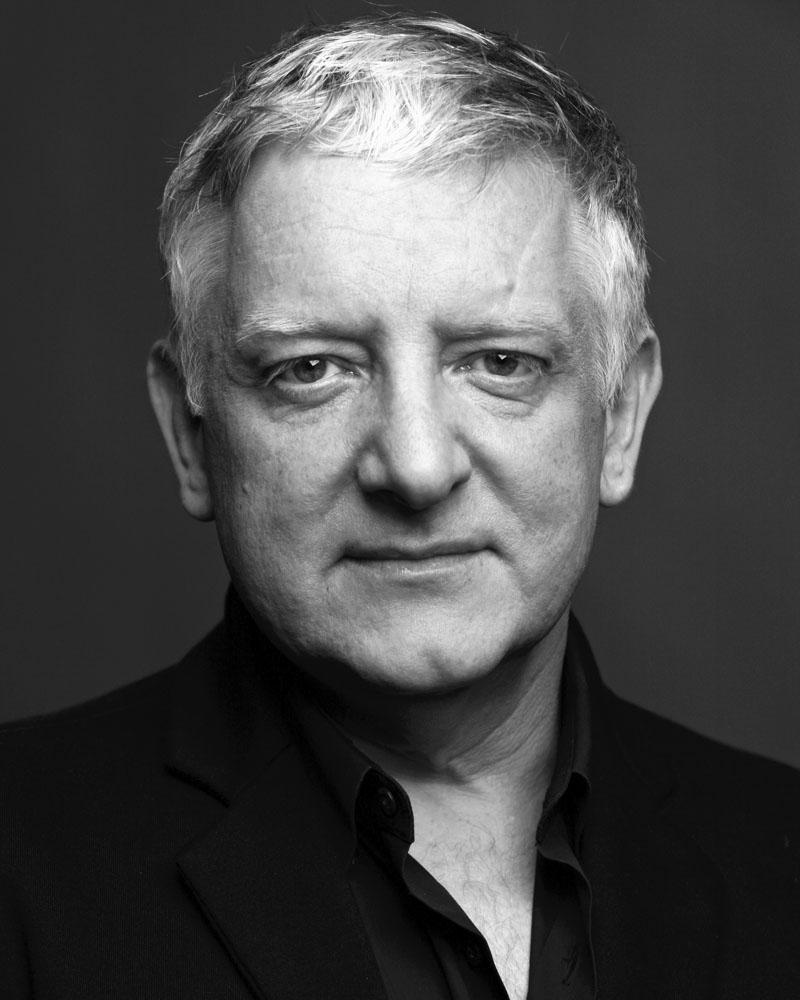
Acting Captain Terri Dennis (Simon Russell Beale)
“Sun-tanned, has dyed blond hair, plucked and pencilled eyebrows, matt tan base… His voice is Shaftesbury Avenue pasted over Lancashire.”
The world‑weary compere and ‘star’ of the show. He’s had his share of lost loves, but still has a strong sense of right and wrong in spite of his cynicism.
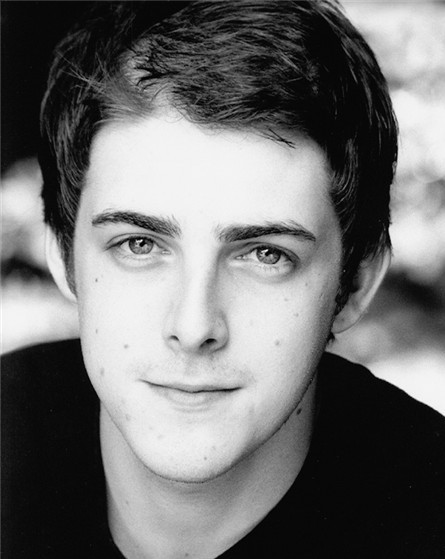
Lance Corporal Charles Bishop (Harry Hepple)
“Twenty but putting on weight and losing hair, camp but matronly, Yorkshire accent.”
Mature for his age, Charles’ former job as a male nurse lends him a natural caring quality, evident in the way he looks after the others – especially Len, to whom he’s devoted.

Sylvia Morgan (Sophiya Haque)
“Twenty-eight, Eurasian, beautiful, speaks with an Indian intonation.”
A principled young woman of Anglo‑Asian descent, she’d like to meet and marry the right man and possibly return to England an officer’s wife.
Sophiya opened the production at the Noel Coward Theatre but sadly passed away during the run of the play. The remaining performances were dedicated to her memory and her performance is captured on the footage that accompanies this site.
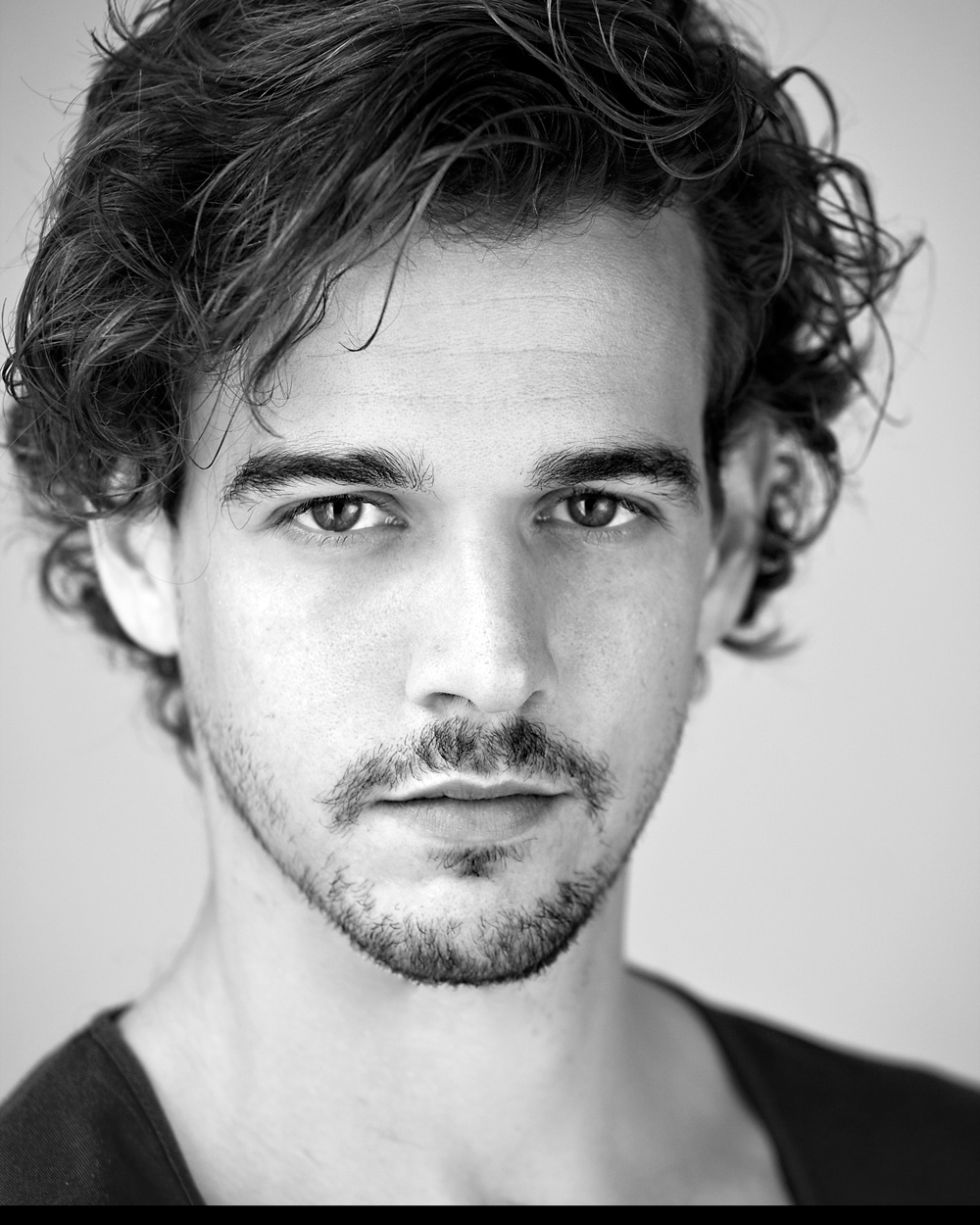
Private Steven Flowers (Joseph Timms)
“A twenty year old, untouched, sun-tanned conscript who speaks with a West Country accent.”
An earnest young man with a firm belief in education. The newest recruit to SADUSEA, the theatrical troupe proves to be a true life‑learning experience for Steven.
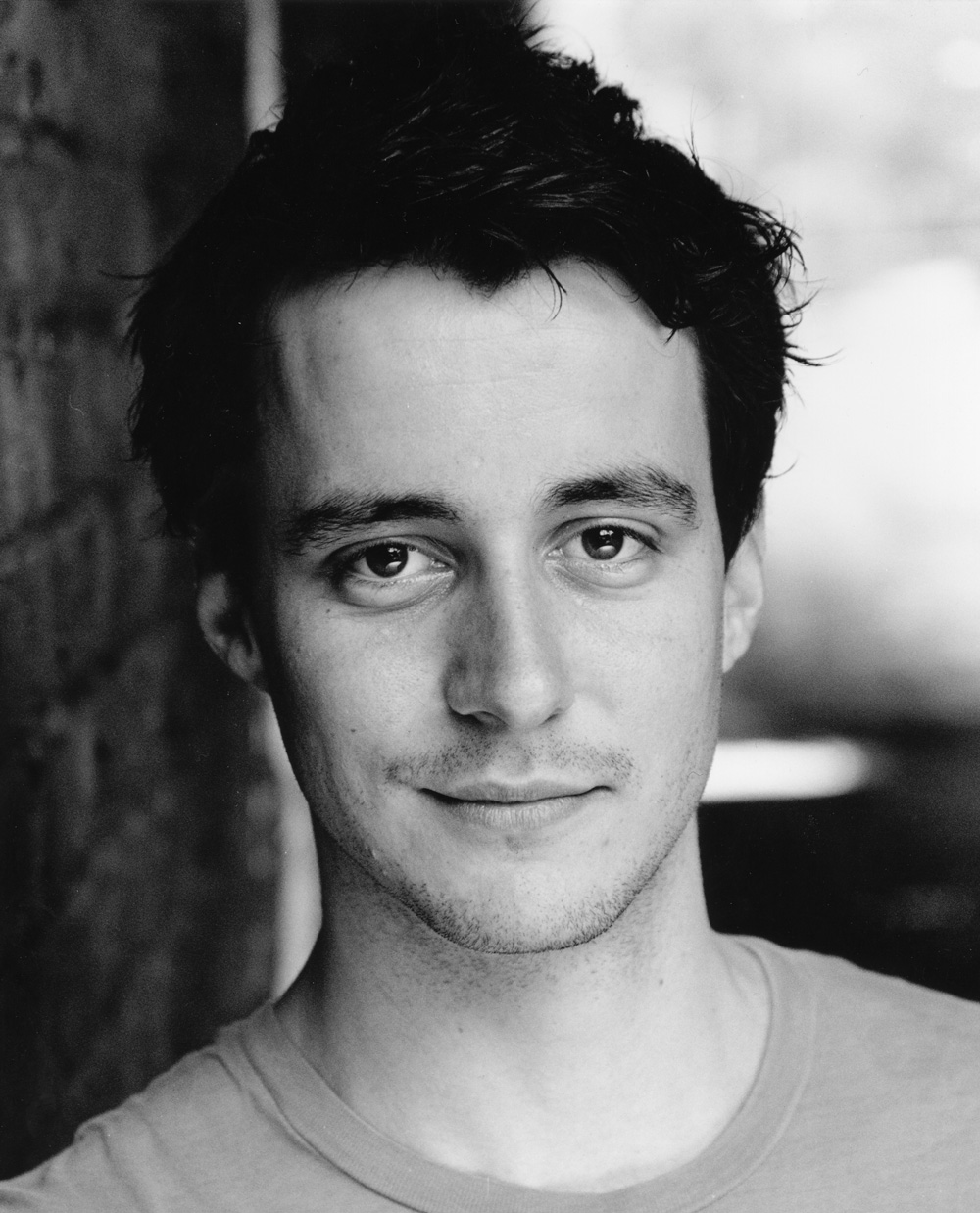
Flight-Sergeant Kevin Cartwright (Sam Swainsbury)
“Twenty-odd, good-looking … London accent, awkward actor.”
Joined up underage, looking for action, and found himself seconded to SADUSEA. An outspoken young man with a mischievous sense of humour, Kevin remains fiercely patriotic.
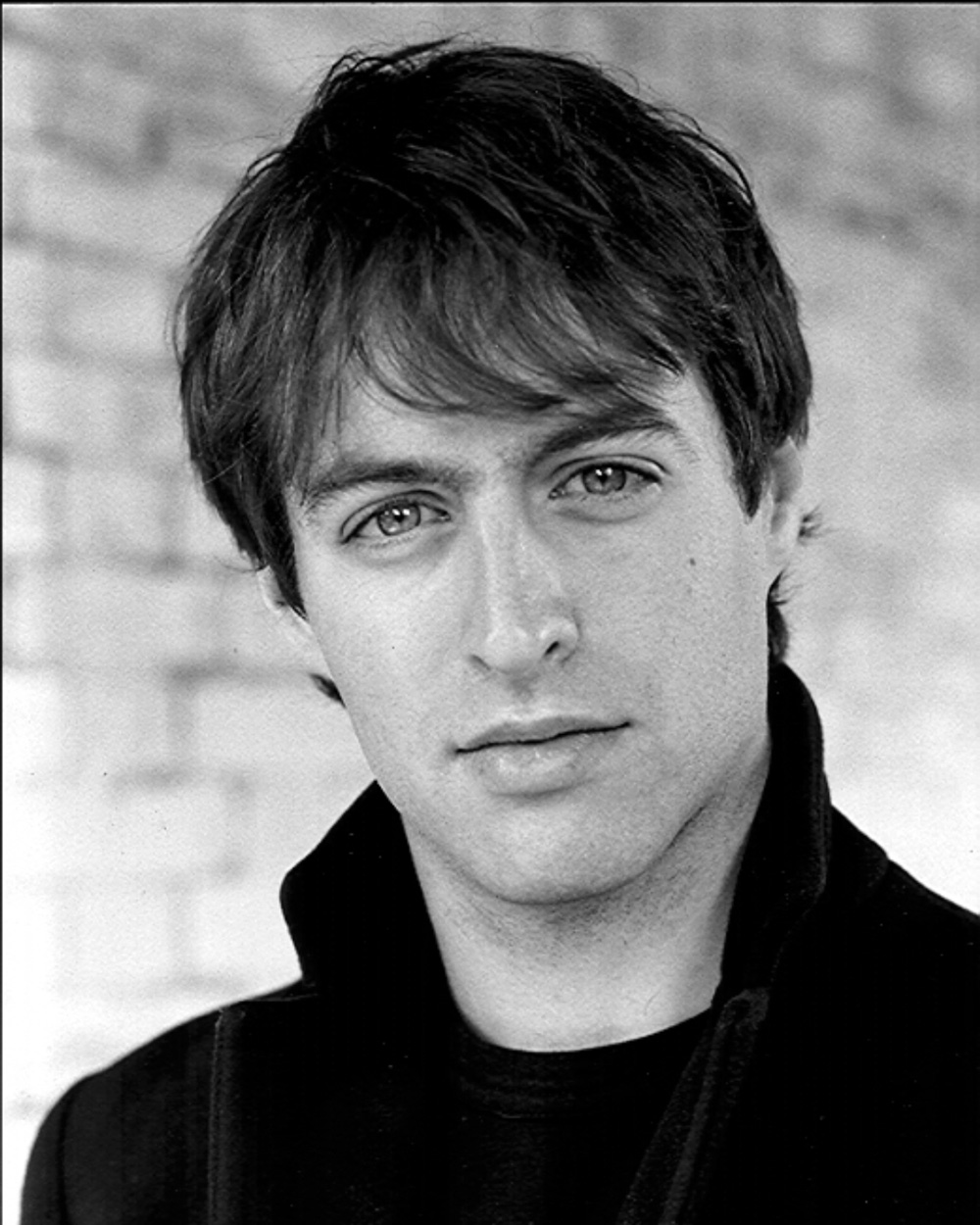
Leading Aircraftman Eric Young-Love (Brodie Ross)
“Twenty, plain, ungainly, hair shaved well above ears, wearing issue glasses and sweating profusely… He has a plummy voice and a hearty demotic manner.”
Highly-strung, Eric is quick to anger. Volunteering for all duties to ‘keep out of trouble’, he longs to be reunited with his beloved fiance Susan back home in England.
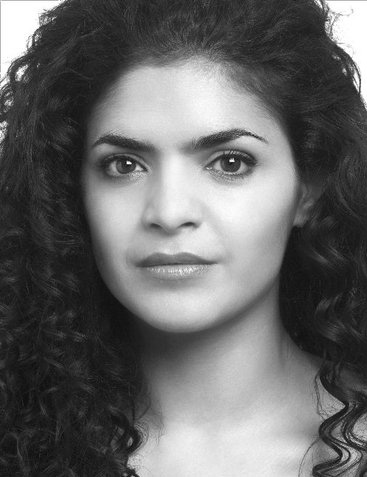
Sylvia Morgan (Davina Perera)
“Twenty-eight, Eurasian, beautiful, speaks with an Indian intonation.“
A principled young woman of Anglo‑Asian descent, she’d like to meet and marry the right man and possibly return to England an officer’s wife.
Davina Perera took over the role for the remaining performances, after Sophia Haque sadly passed away.
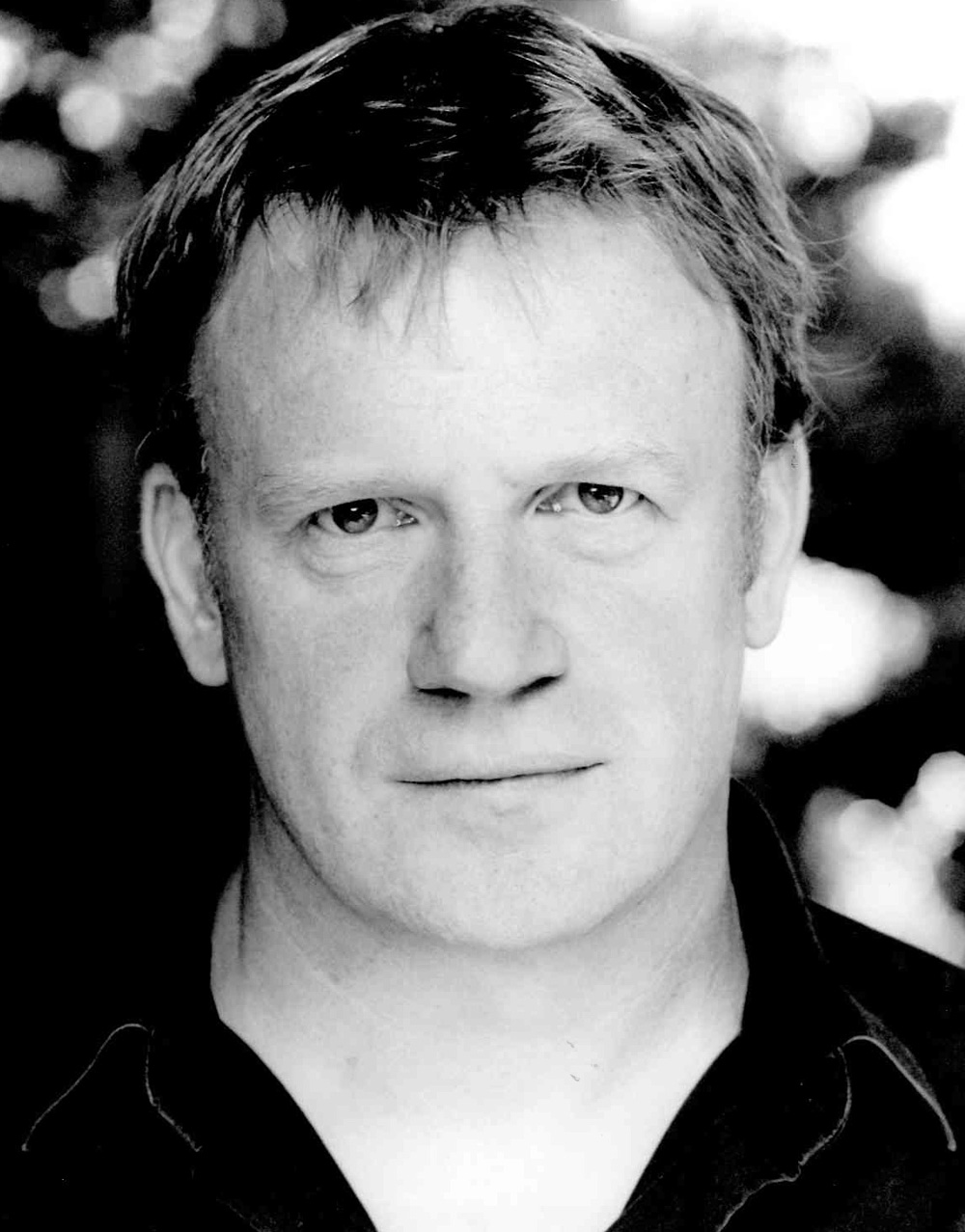
Sergeant Major Reg Drummond (Mark Lewis Jones)
One of the older members of the company, closer in age to Terri, Reg is an aggressive man, particularly when fuelled by alcohol. He’s involved in various money‑making schemes and rackets and is therefore suspicious of most of his colleagues, especially Steven and his interest in Sylvia.
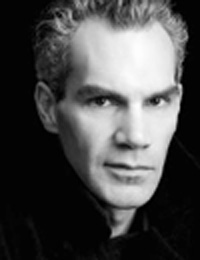
Major Giles Flack (Angus Wright)
“A spare ascetic man, authoritative, quiet, with the air of an earnest scoutmaster.”
A true Imperialist who wants to serve his God, his King and country, and has unquestioning faith in all three. He has high hopes for Steven, regarding him as the son he never had.
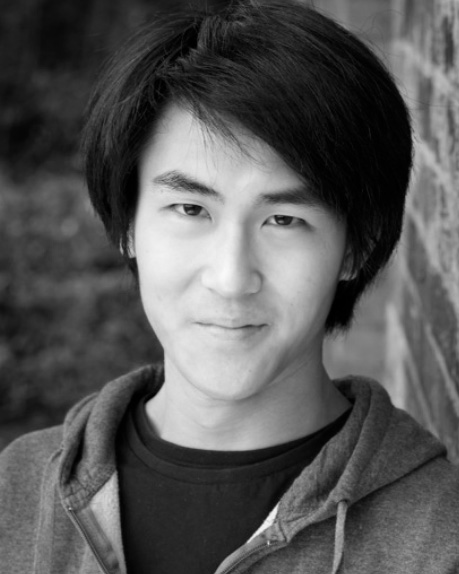
Cheng (Sadao Ueda)
Silent but always listening… they are the future of Singapore.
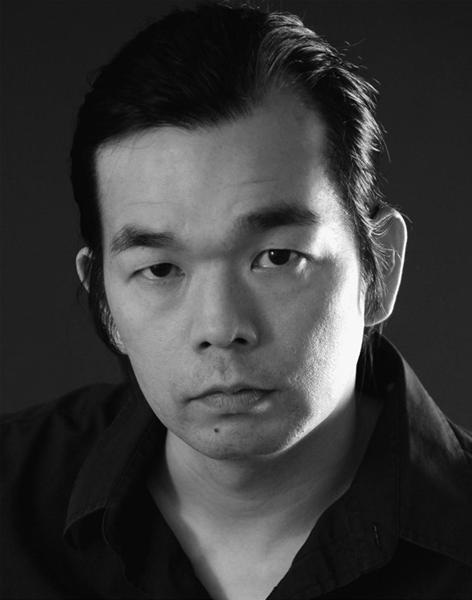
Lee (Chris Chan)
Silent but always listening… they are the future of Singapore.
My University
Peter Nichols discusses his National Service in Asia, shortly after the Second World War, and the ‘education’ he received in the Combined Services Entertainment unit, which was the inspiration for Privates on Parade
‘This was a slumbering time [1946]. Pots were about to boil over. In eight months India would go it alone; in 18 China would go red; in a year or so serious trouble would start in Malaya. ‘An emergency they’re calling it,’ says Major Flack in Privates, ‘but that’s softly-softly officialese. Everyone knows it’s the start of the Third World War.’ There was a very good reason not to call it a war. Insurance policies were so framed that they wouldn’t cover the damage. To those being shot or having their hand cut off, it might have felt like a war but they were wrong. It was only an emergency.
From 1948 to 1960 over 100,000 British, Malays, Indians and Chinese were kept busy trying to defeat a guerrilla band of 5,000. Letters from home reminded me that things could have been worse. Friends who’d stayed described an England of cold, boredom and shortages, a London crippled by transport strikes. Yet we would all, without exception, have given the sun-soaked beach, the tropic village, the garden city, for all the miseries of Atlee’s England.
I was bounced about the island [Singapore] like a bagatelle ball till I rolled into the hole I wanted. Nee Soon is a spacious sylvan military camp. Beyond a ravine, terraced on a slope of the far hill, the off-white block of Combined Services Entertainment now – in 1984 – stands empty. On the sloping lawn before our billet, where once was heard the patter of ping-pong and the squeaks and farts of amateur bands rehearsing show tunes, all is quiet but the wind up the ravine stirring leaves on the great overhanging tree that was in our day a sapling. Hardly comparable with rooms at King’s College or Trinity, but this was where my education began.’
This is an edited extract from Peter Nichols’ memoir Feeling You’re Behind (George Weidenfeld and Nicolson Ltd., 1984)
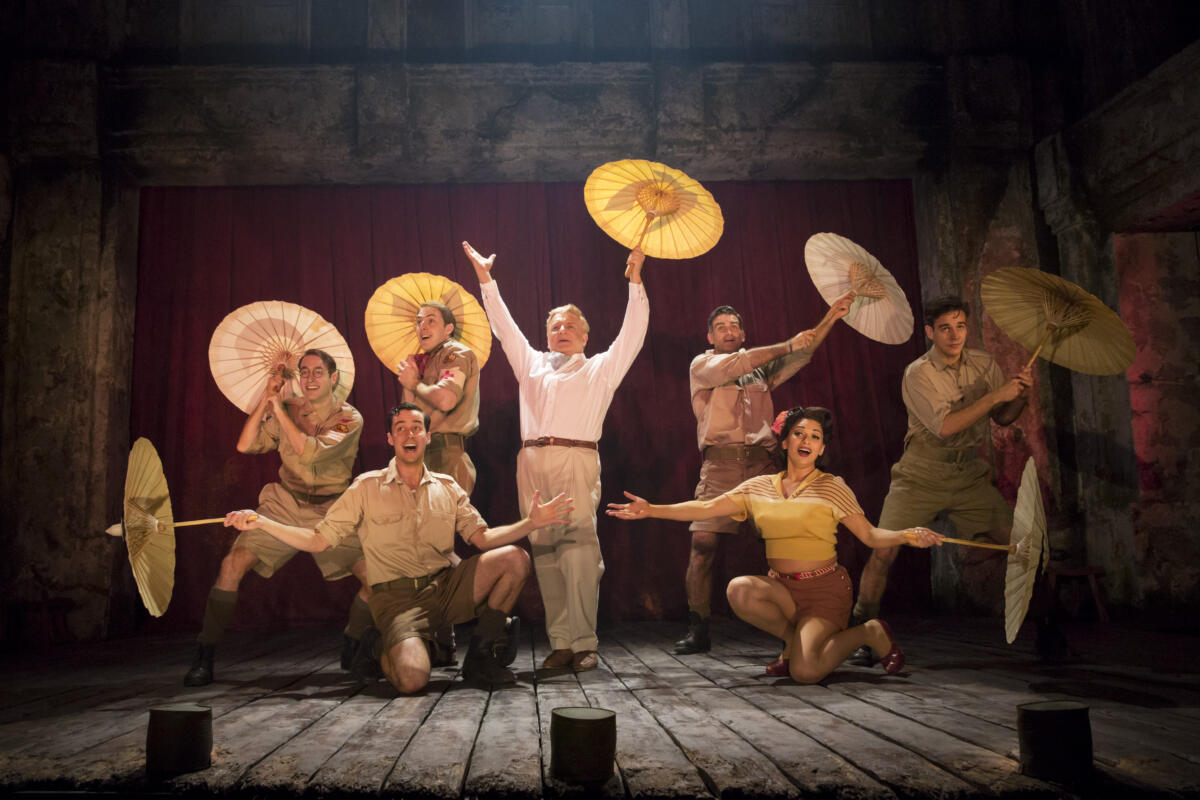
Further Reading
- Privates on Parade – A play with songs by Peter Nichols
Music by Denis King (Samuel French, 1977/2001)
The text of the play. - Feeling You’re Behind by Peter Nichols (Weidenfeld and Nicholson, 1984)
Peter Nichols’ autobiography - Peter Nichols: Diaries 1969-1977 by Peter Nichols (Nick Hern Books, 2000)
Audio
Peter Nichols discusses Privates on Parade with Dominic Cavendish (13/10/2008)
Listen now
